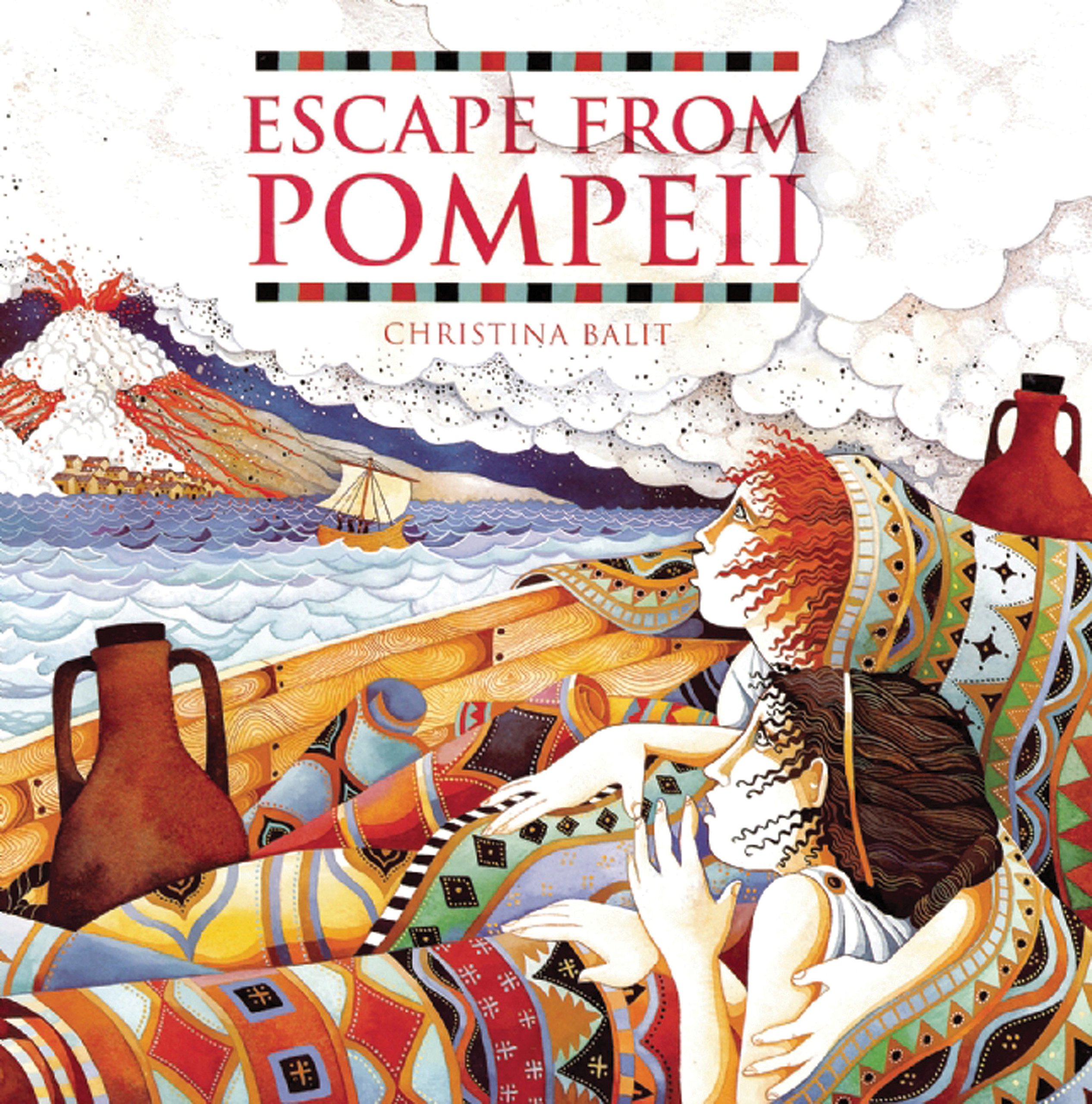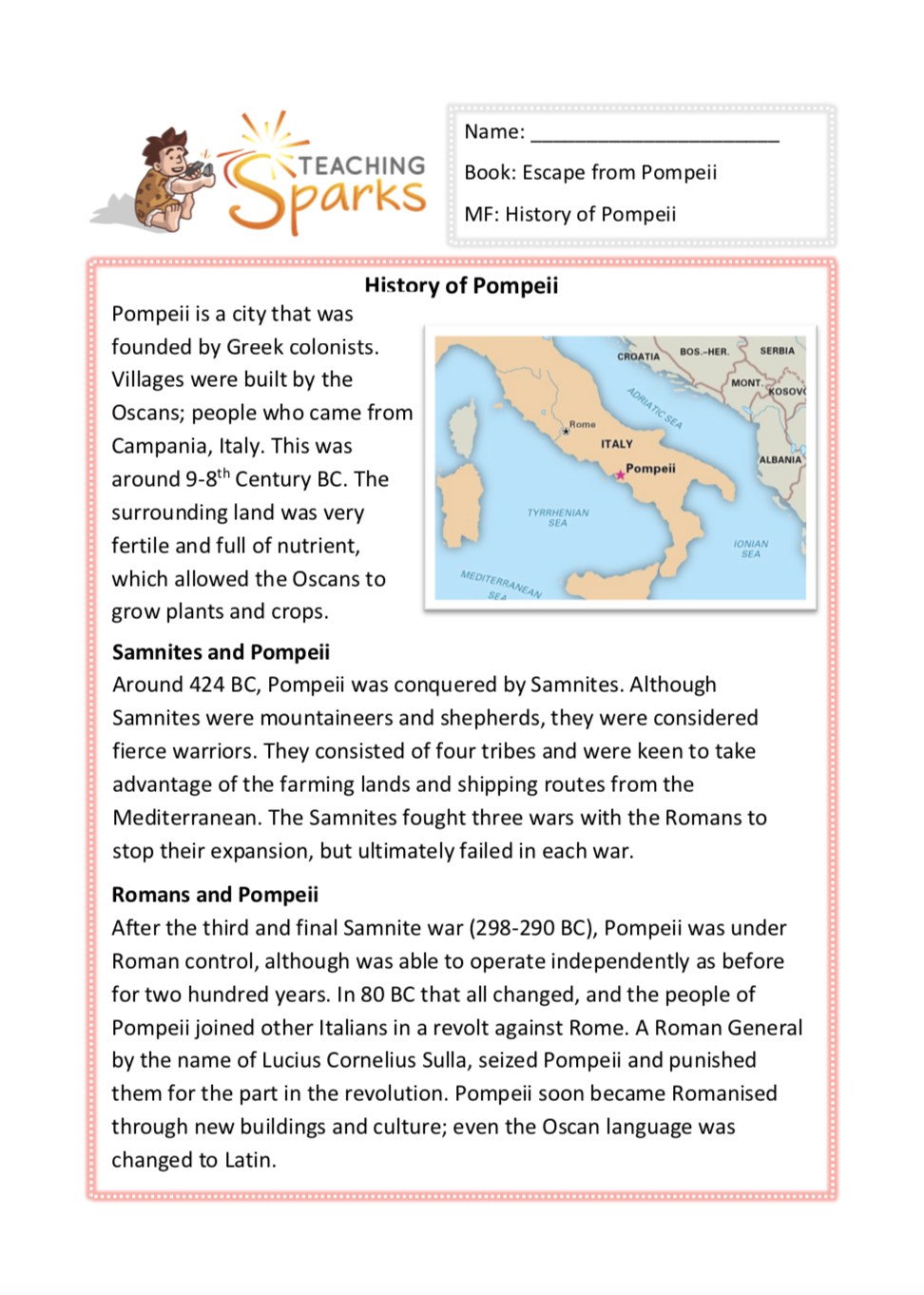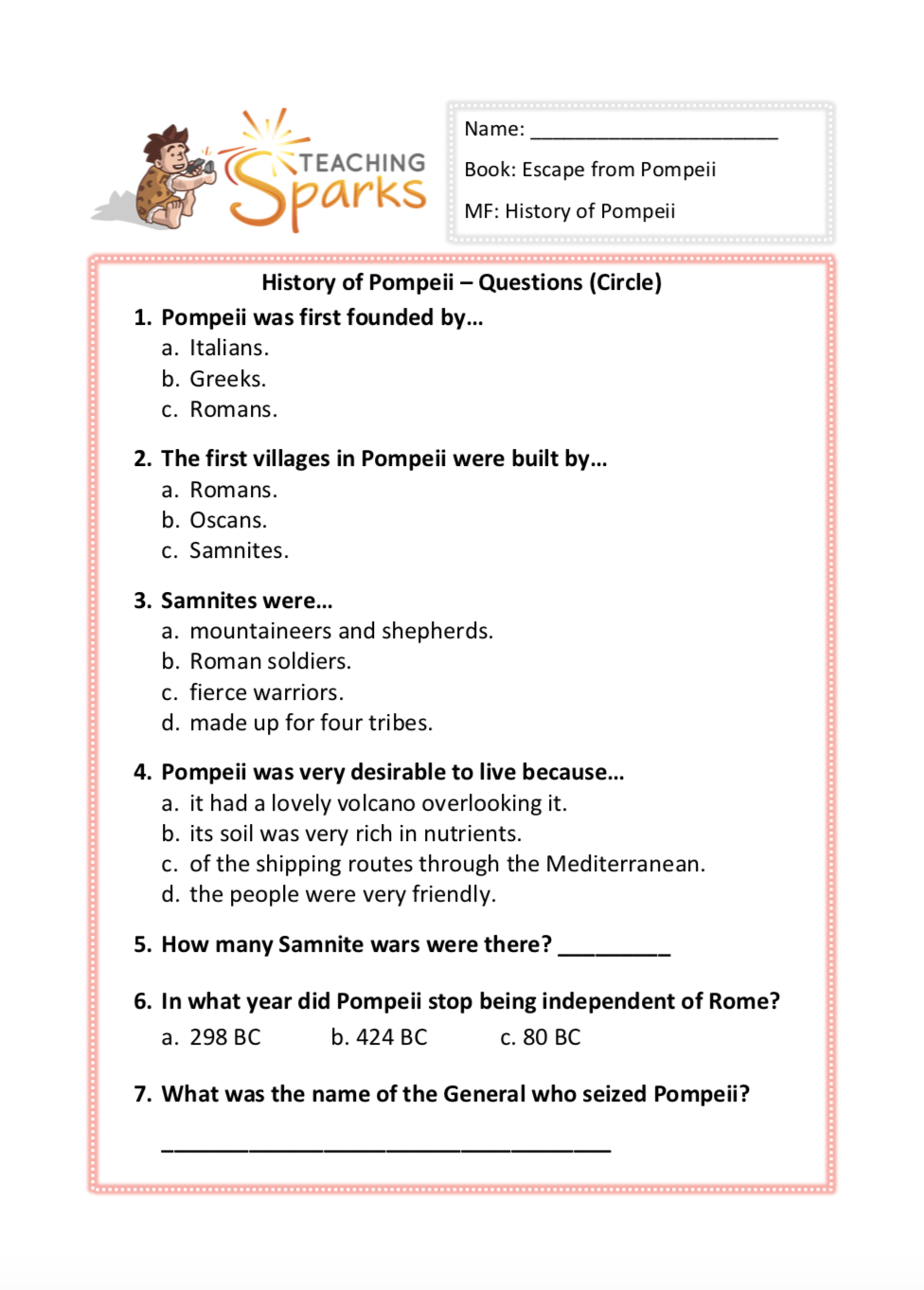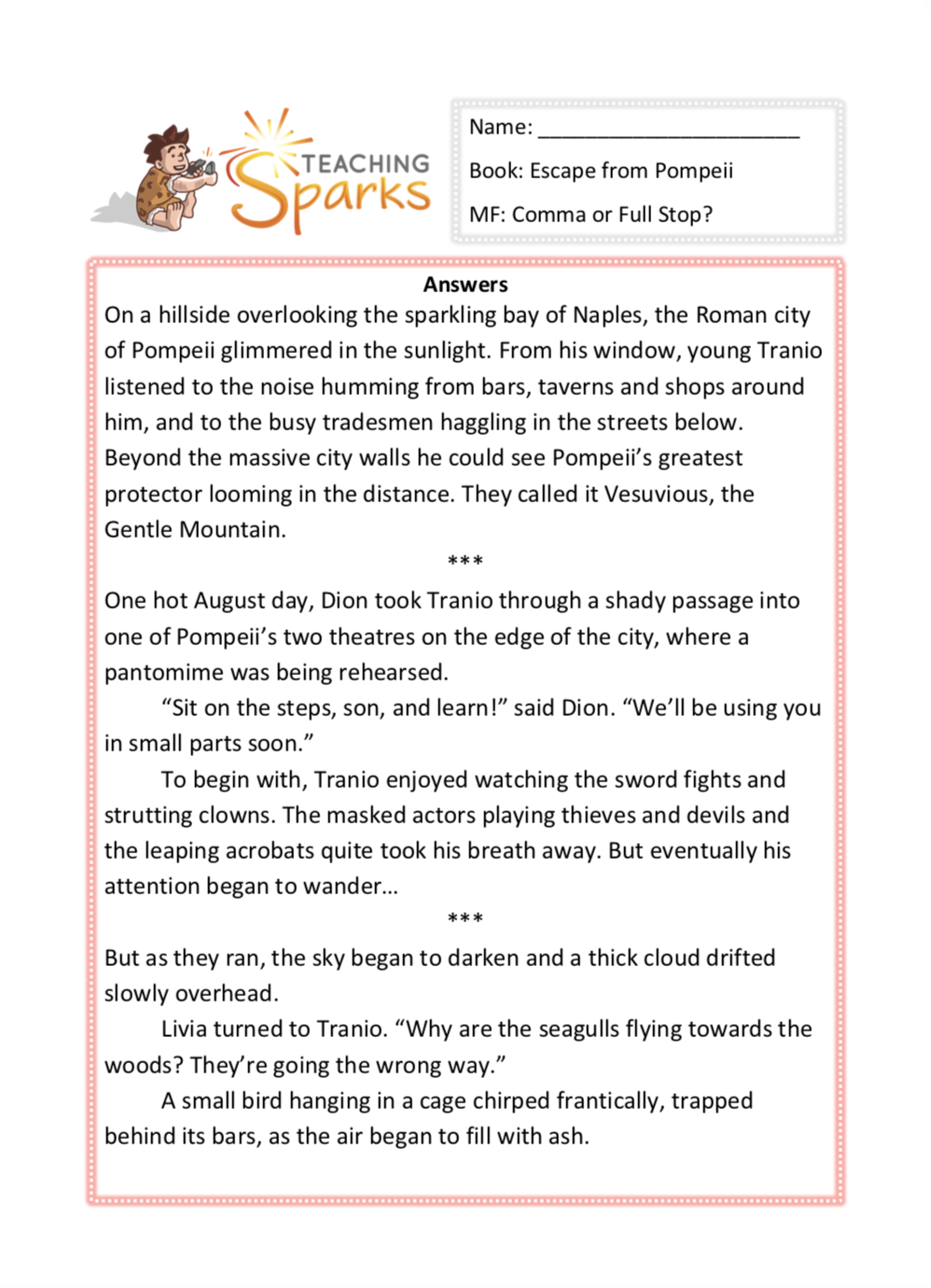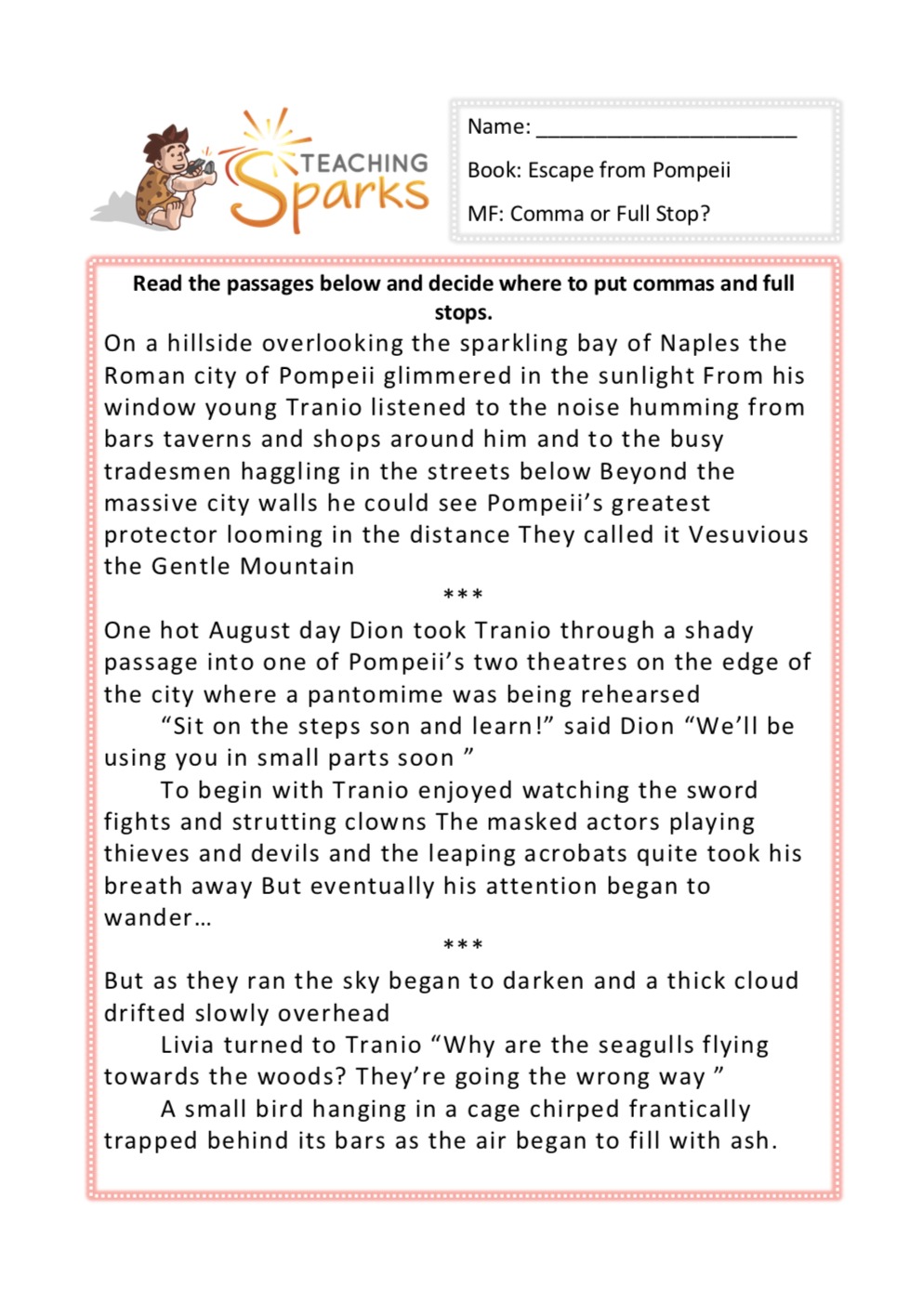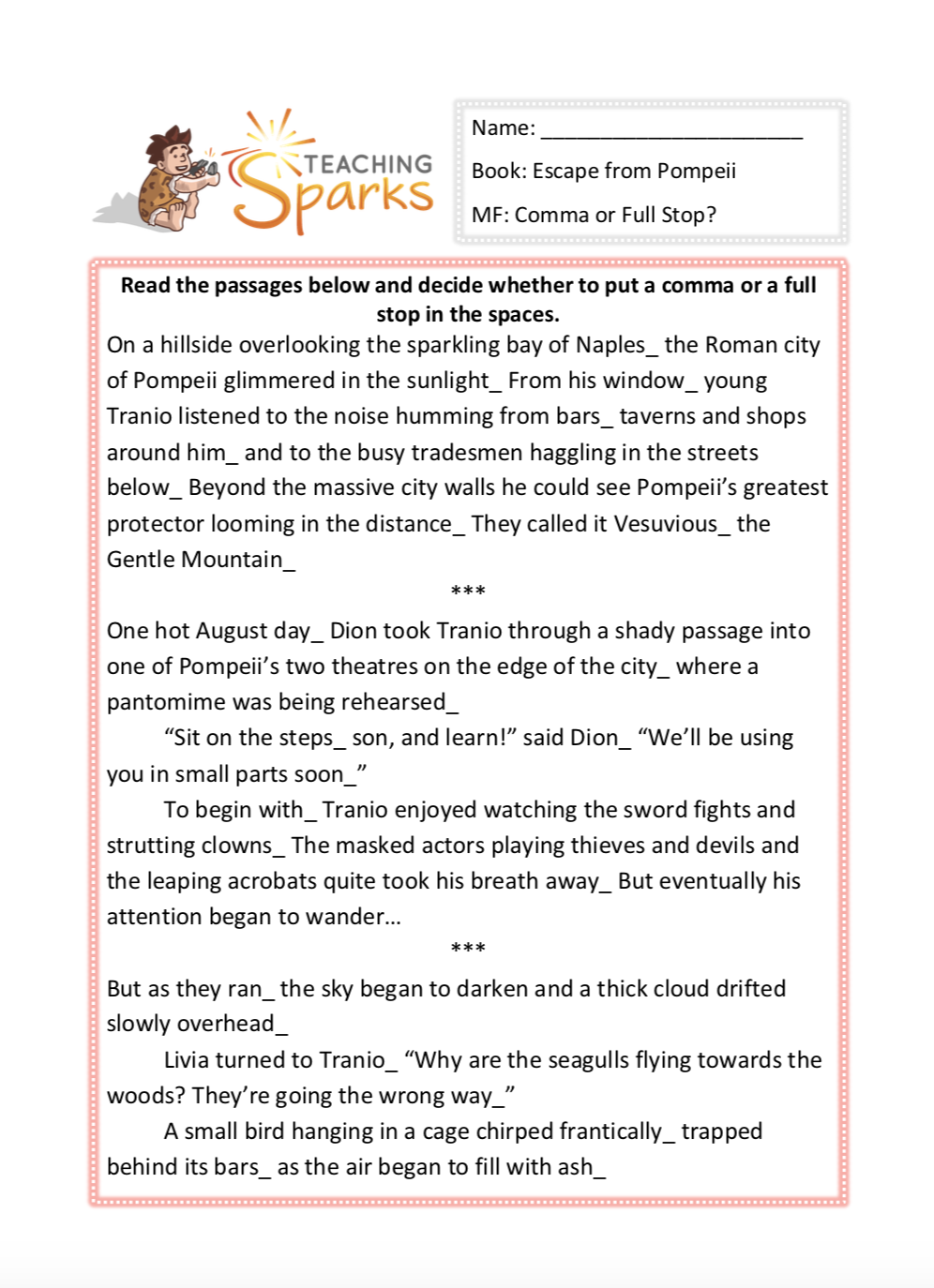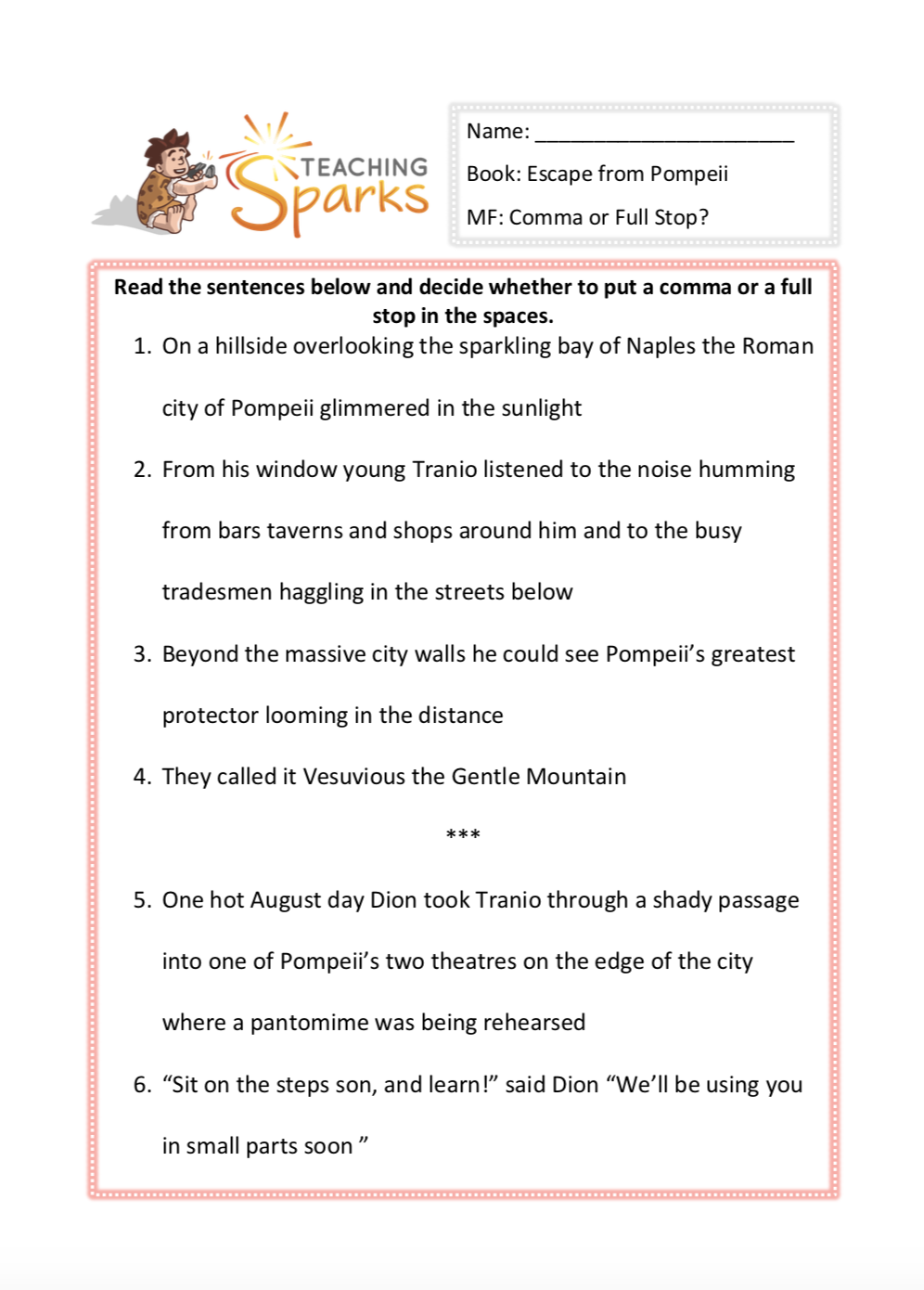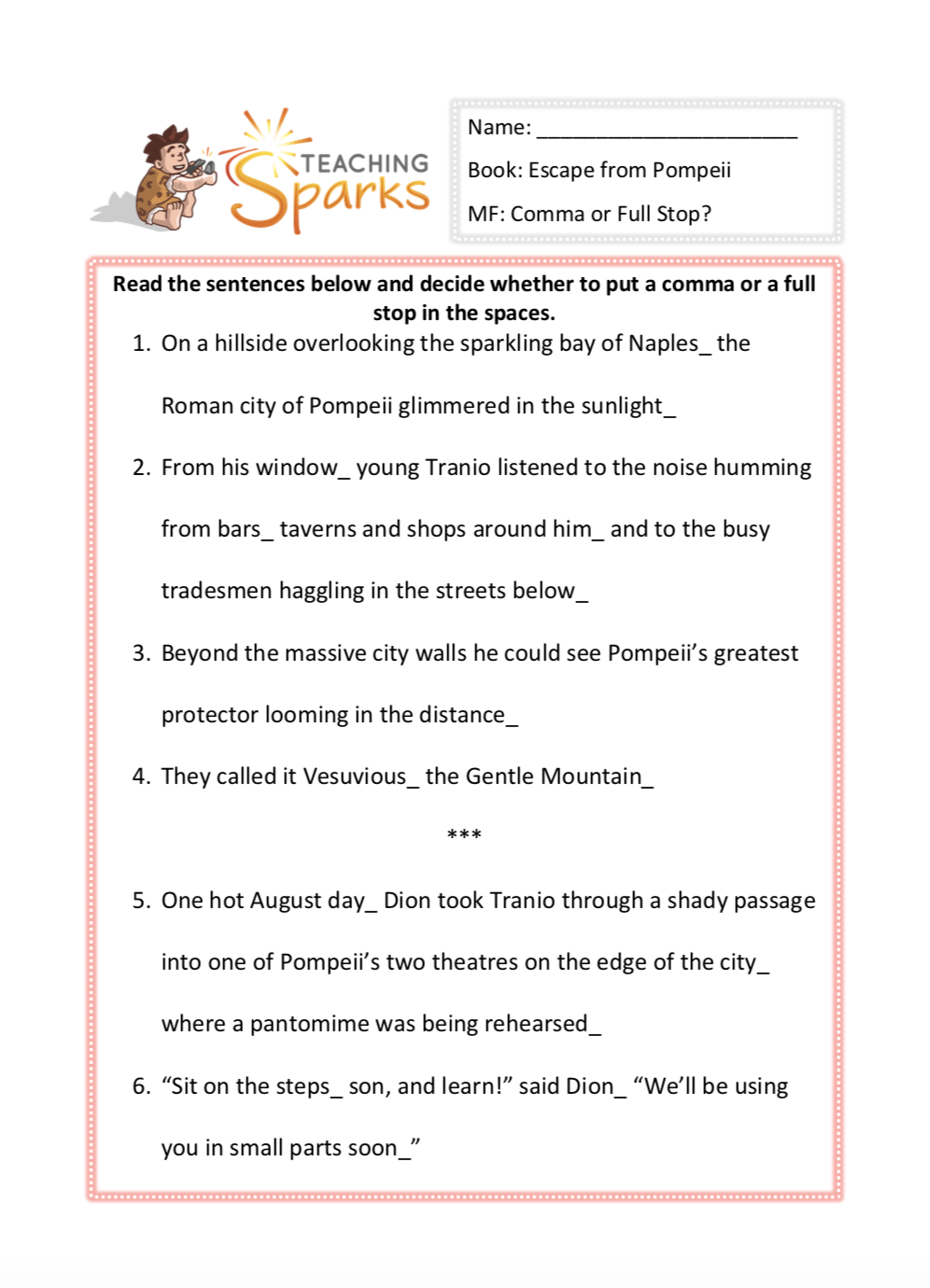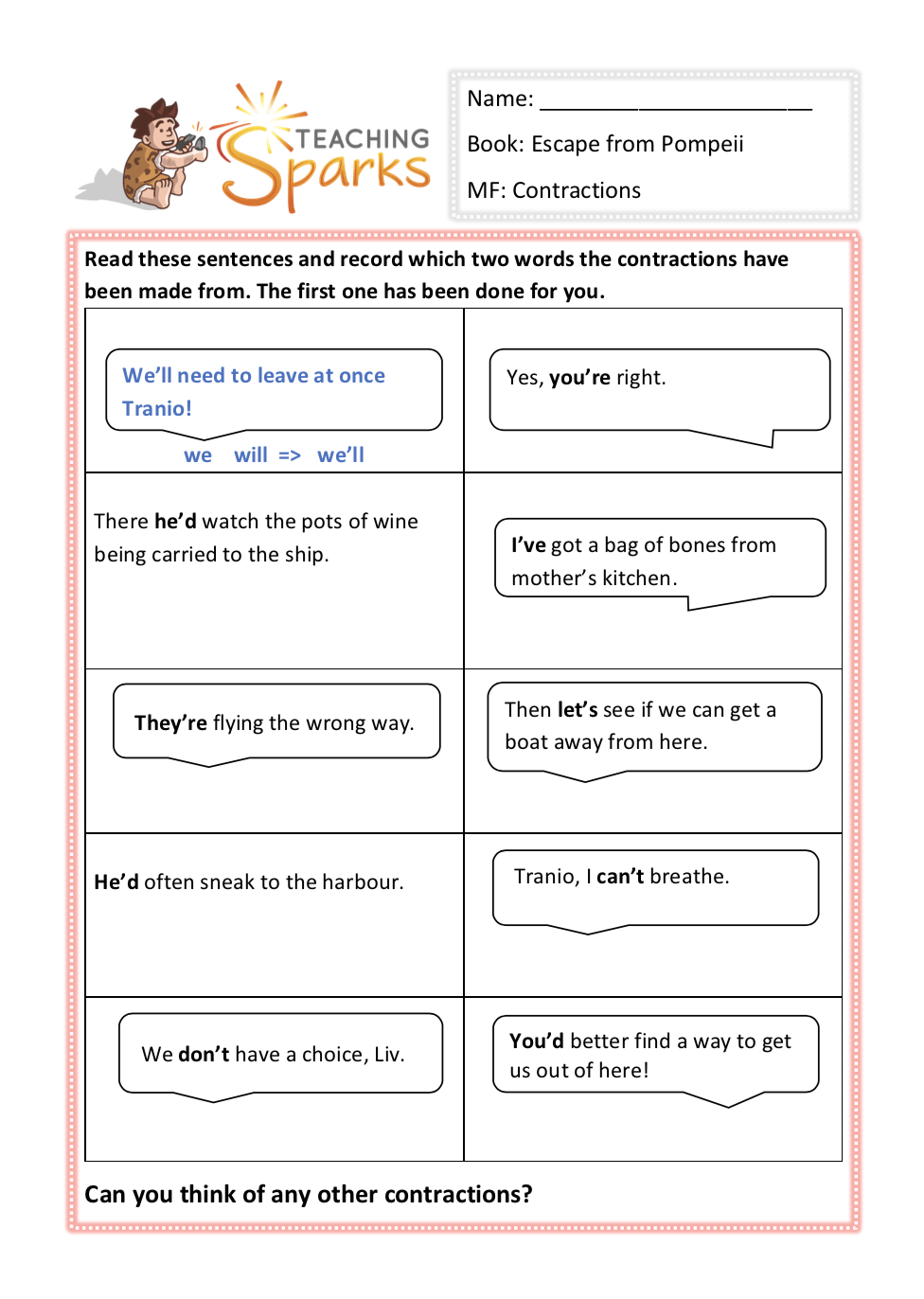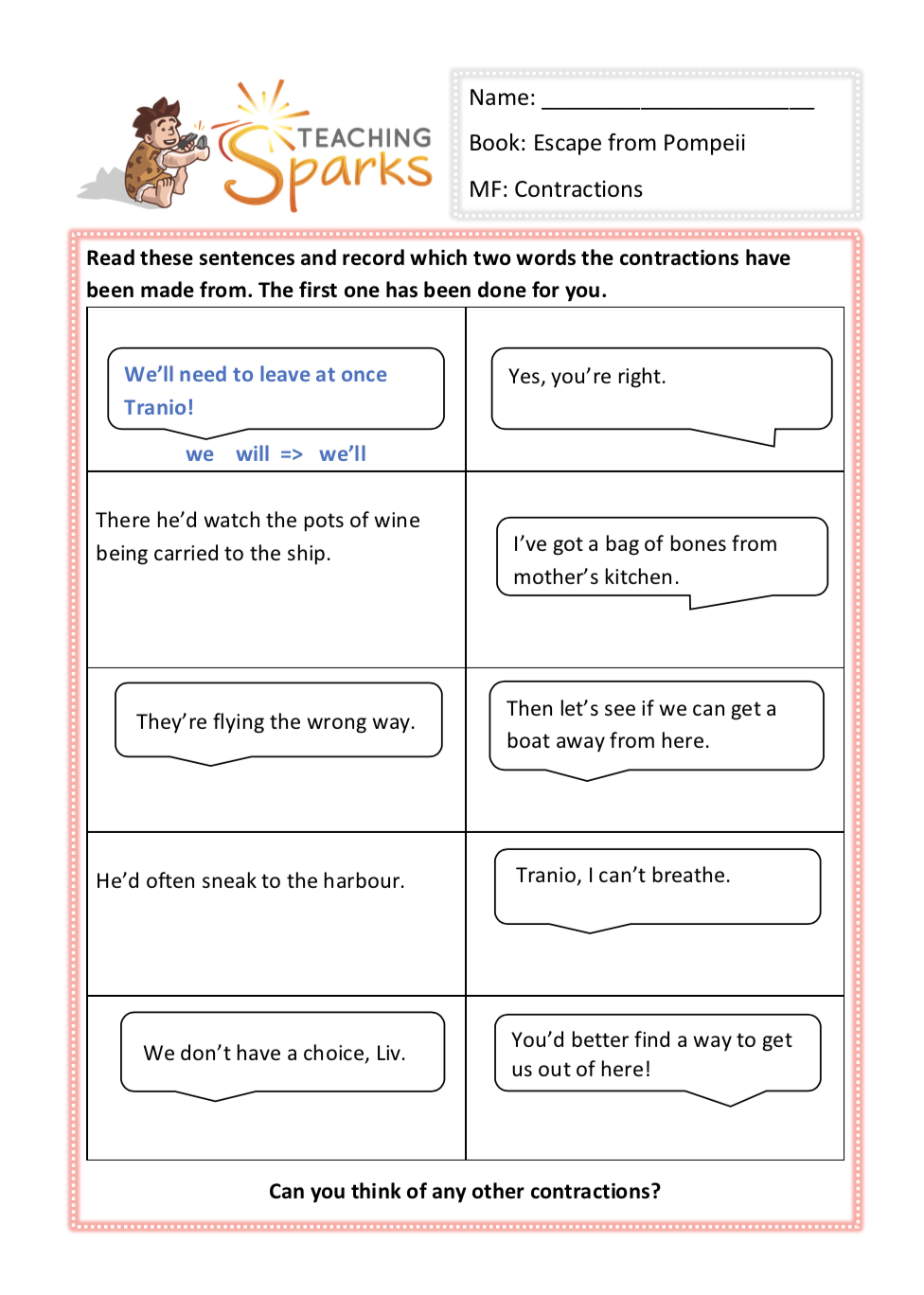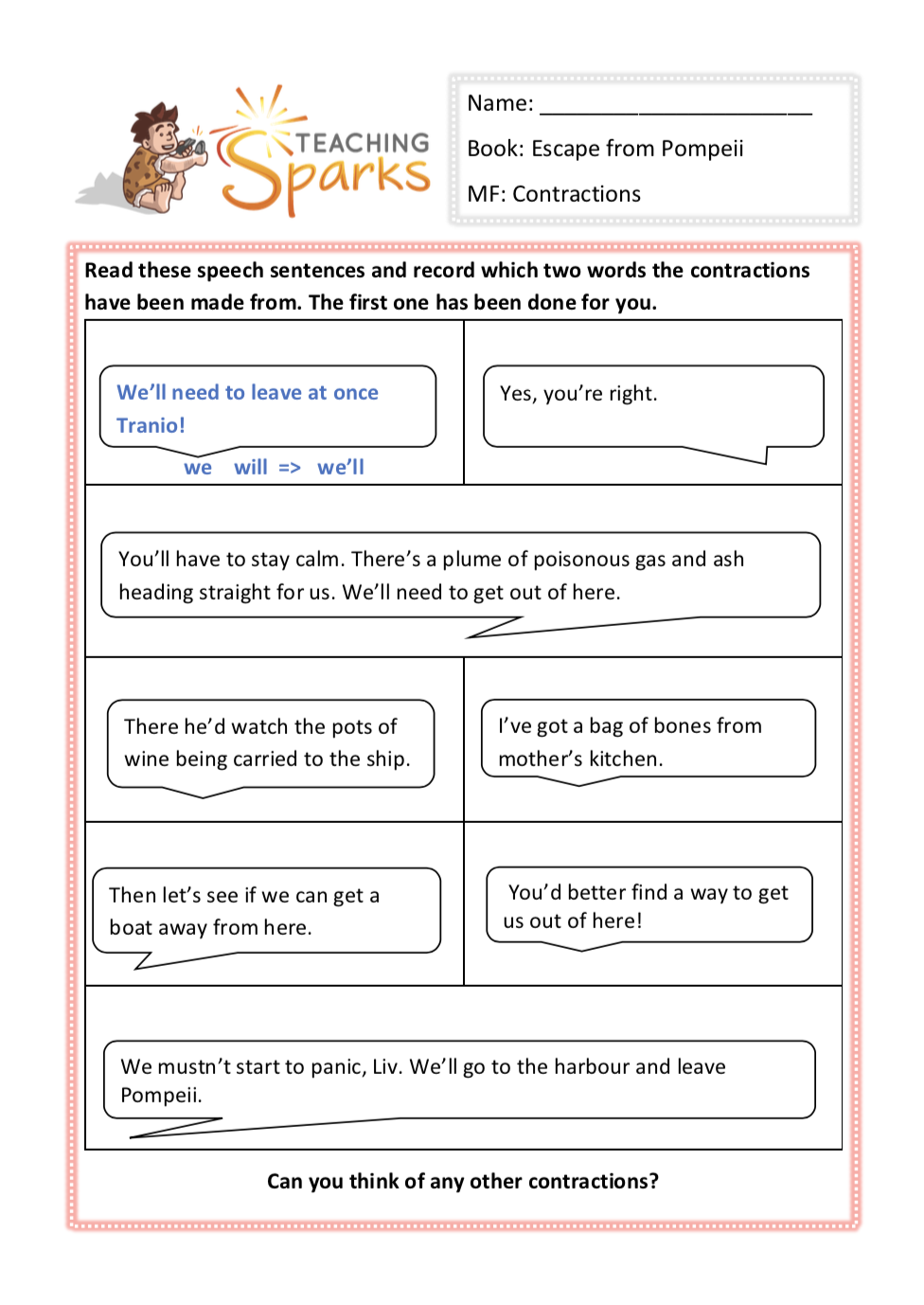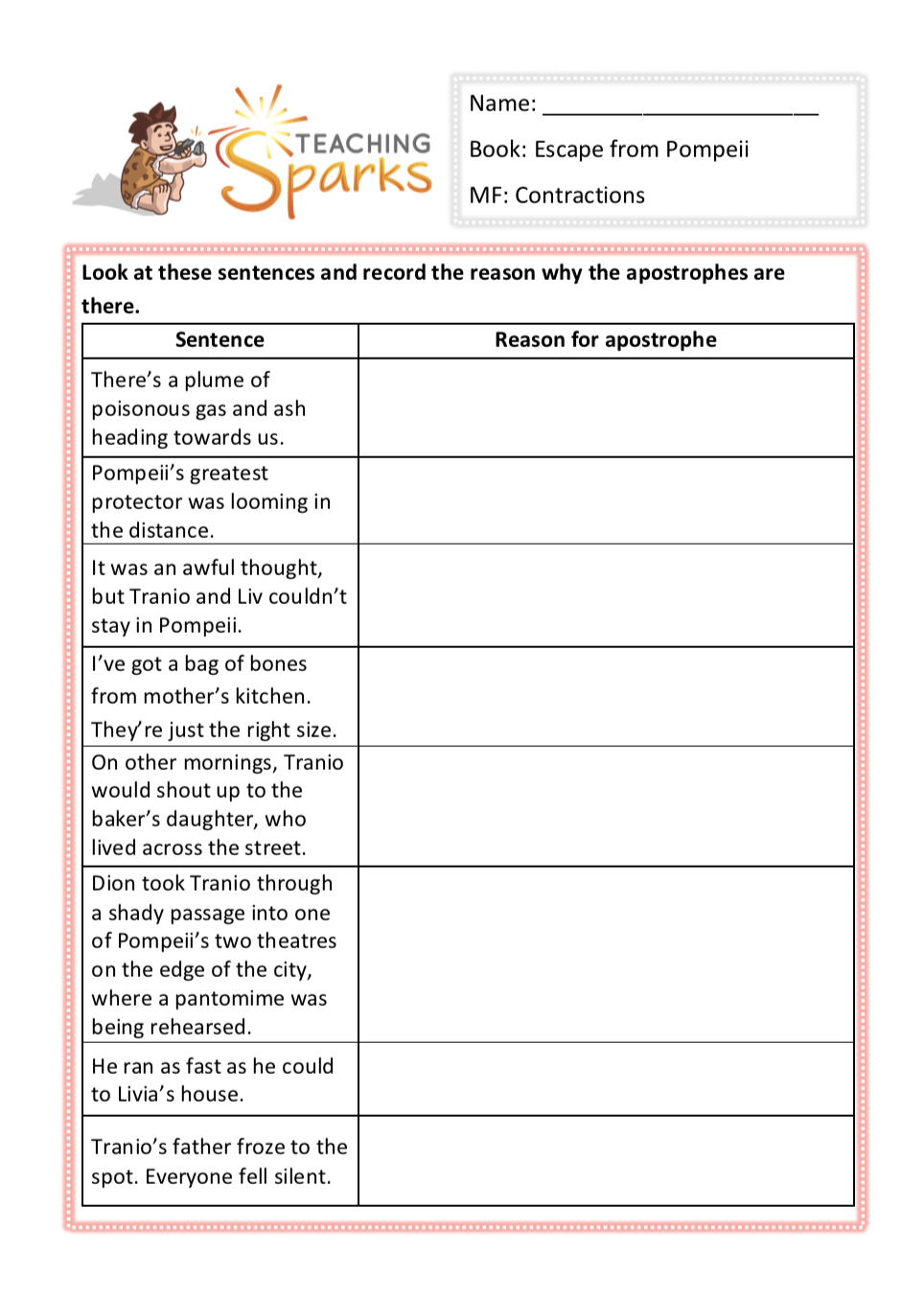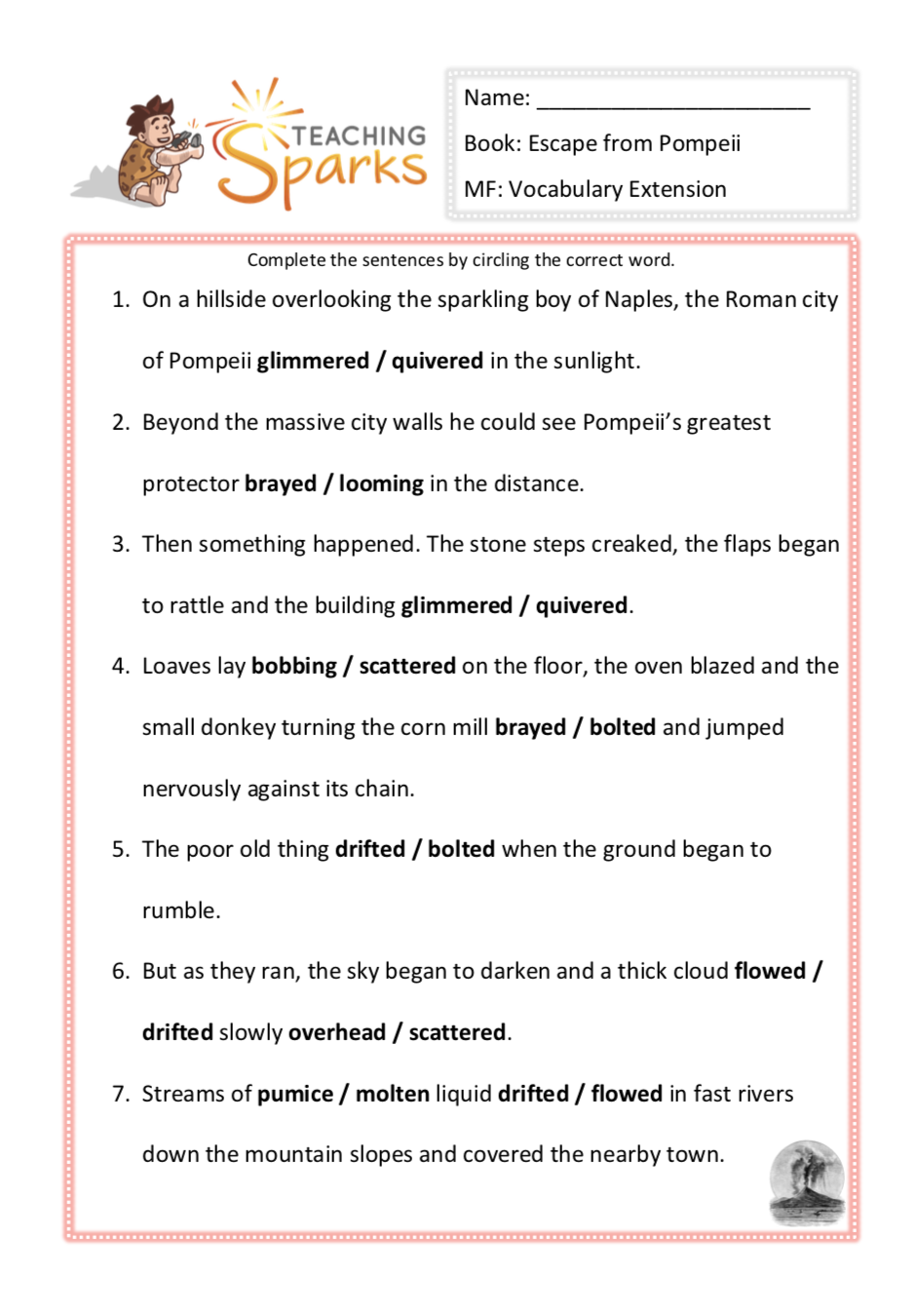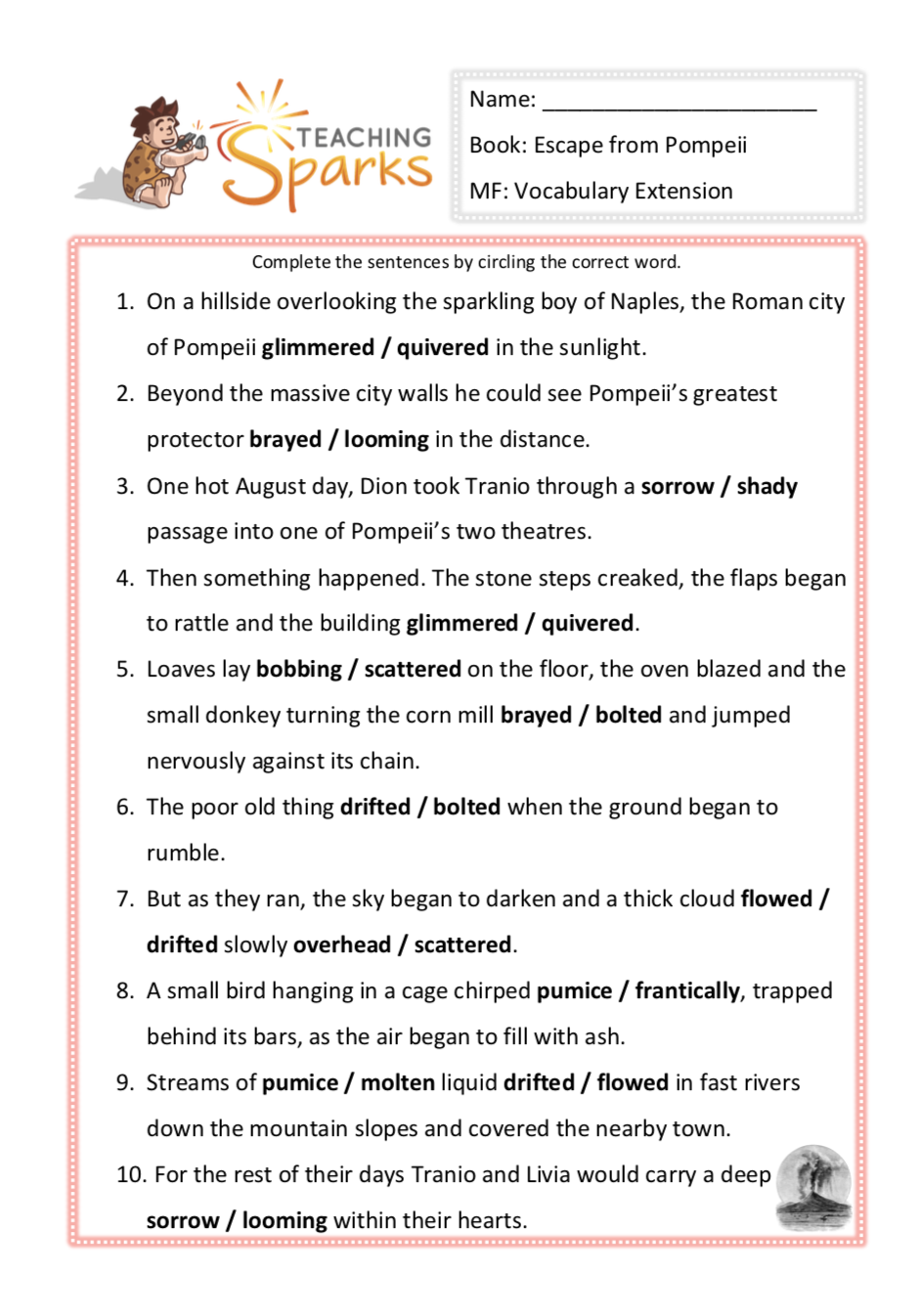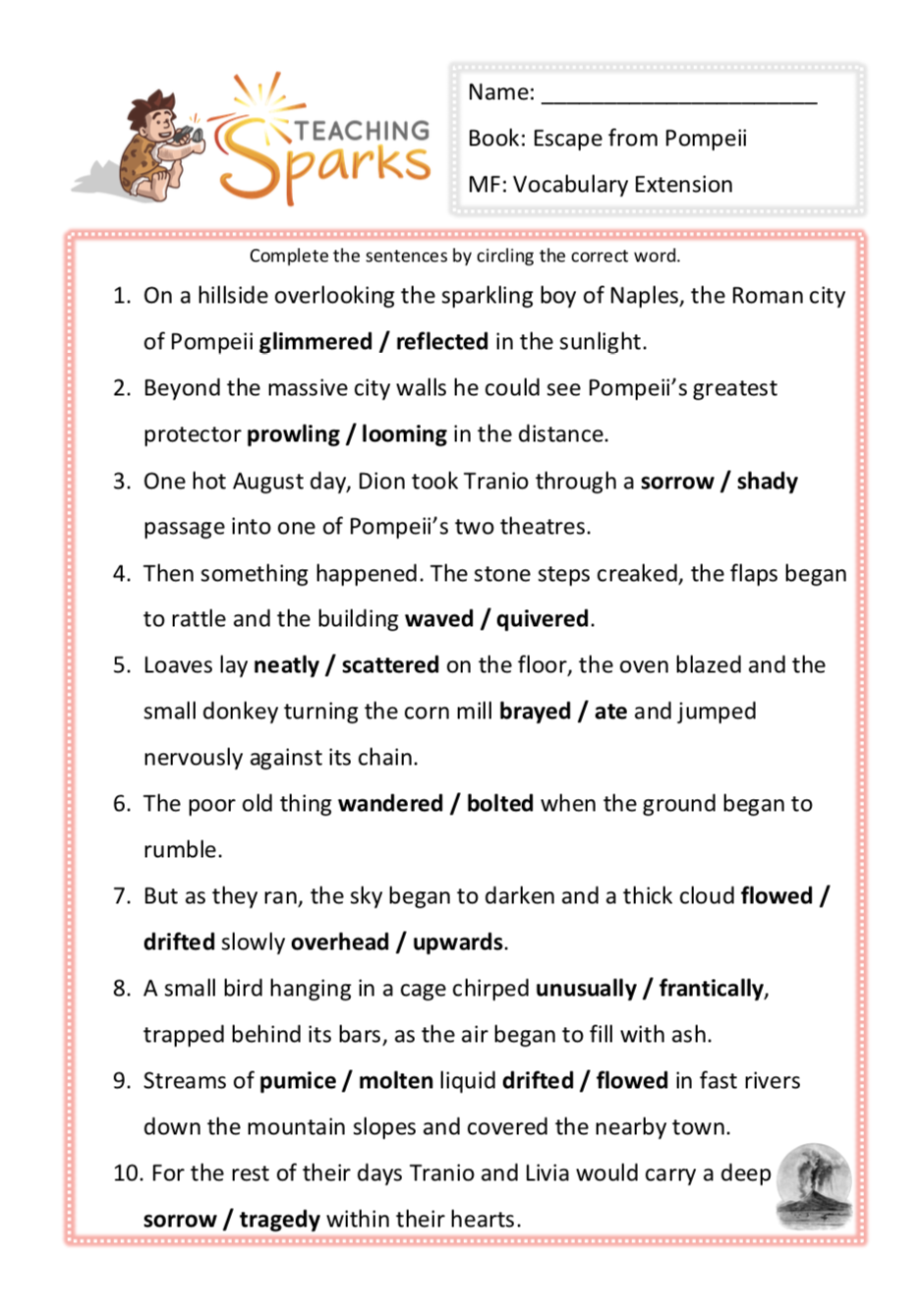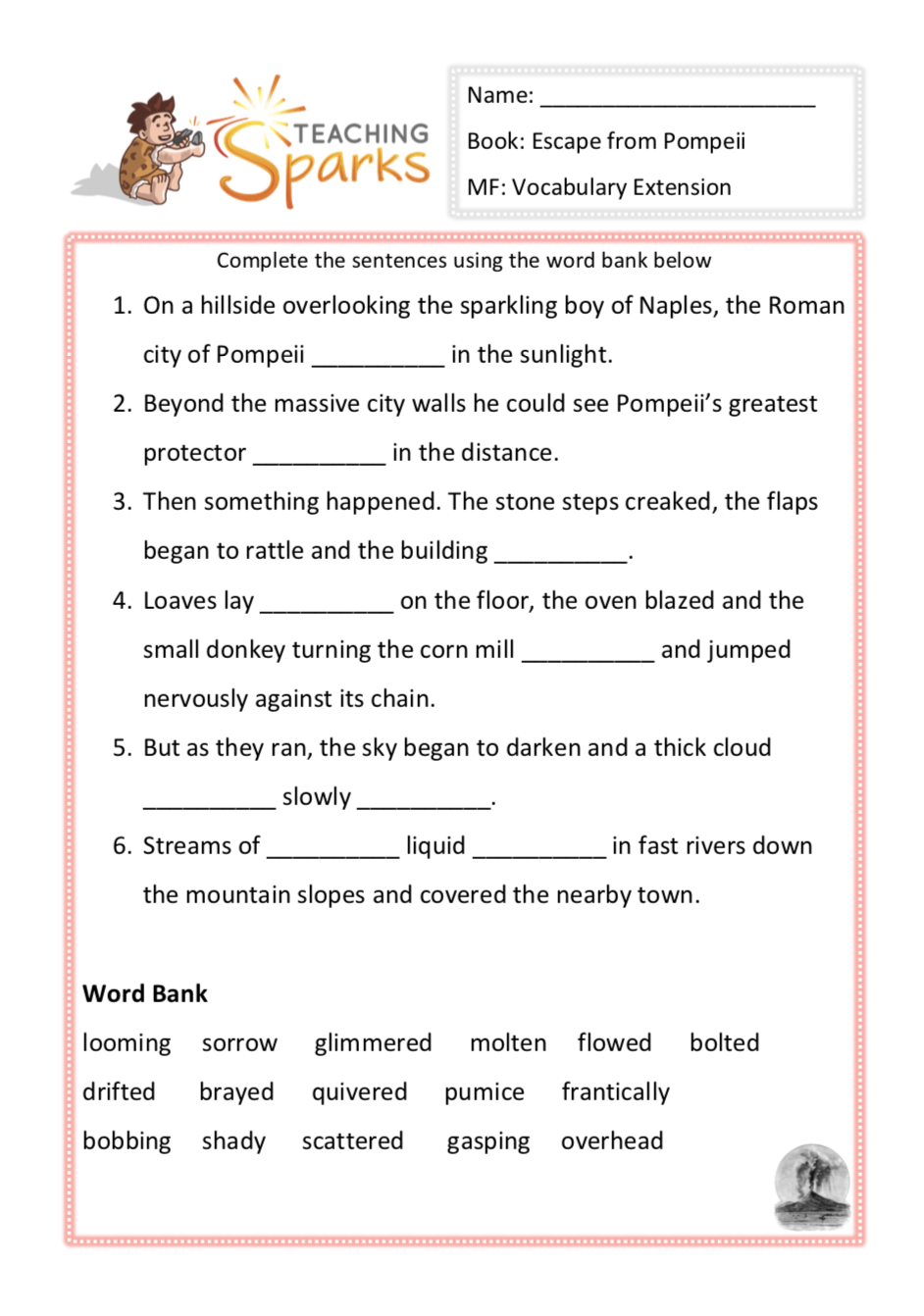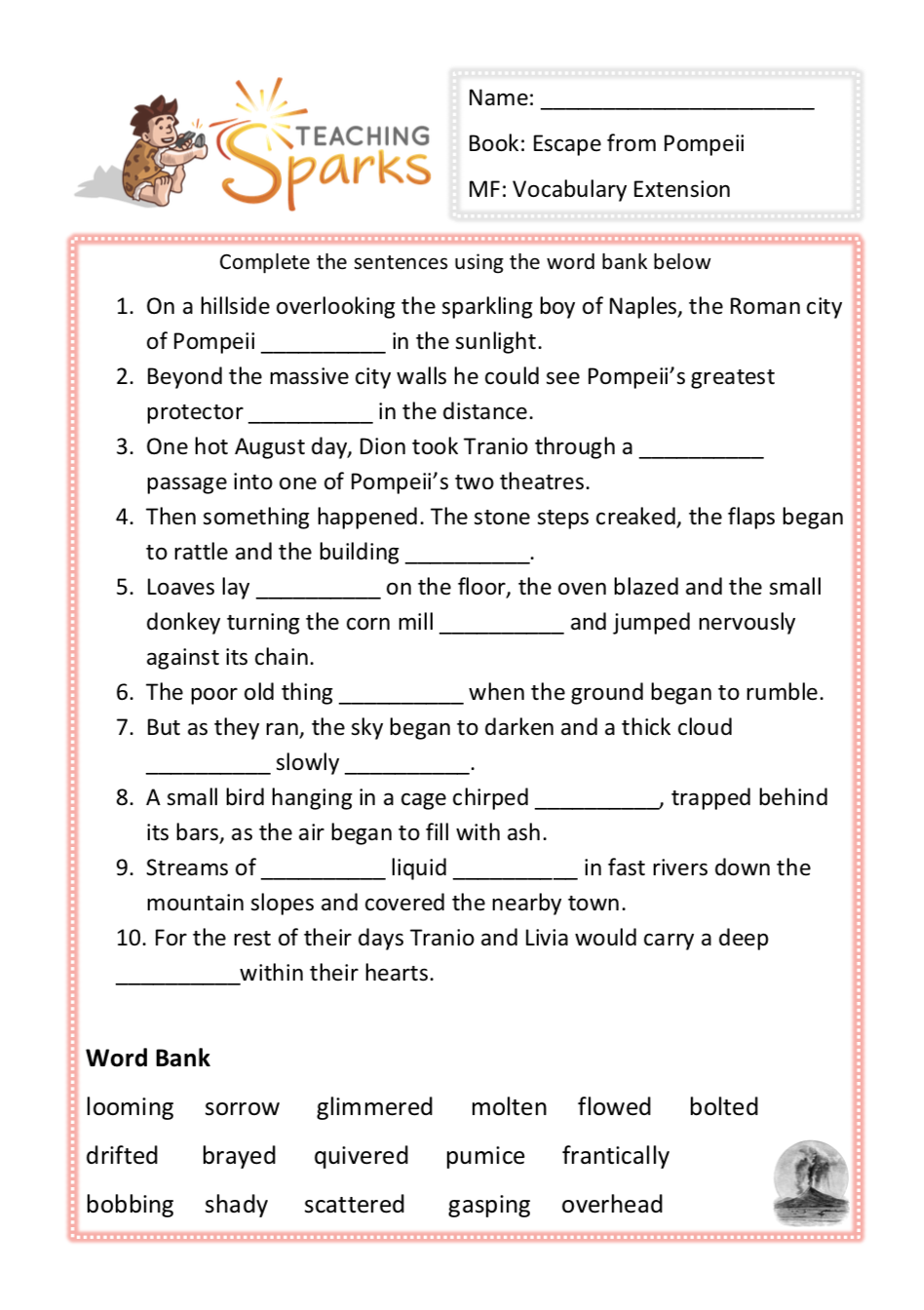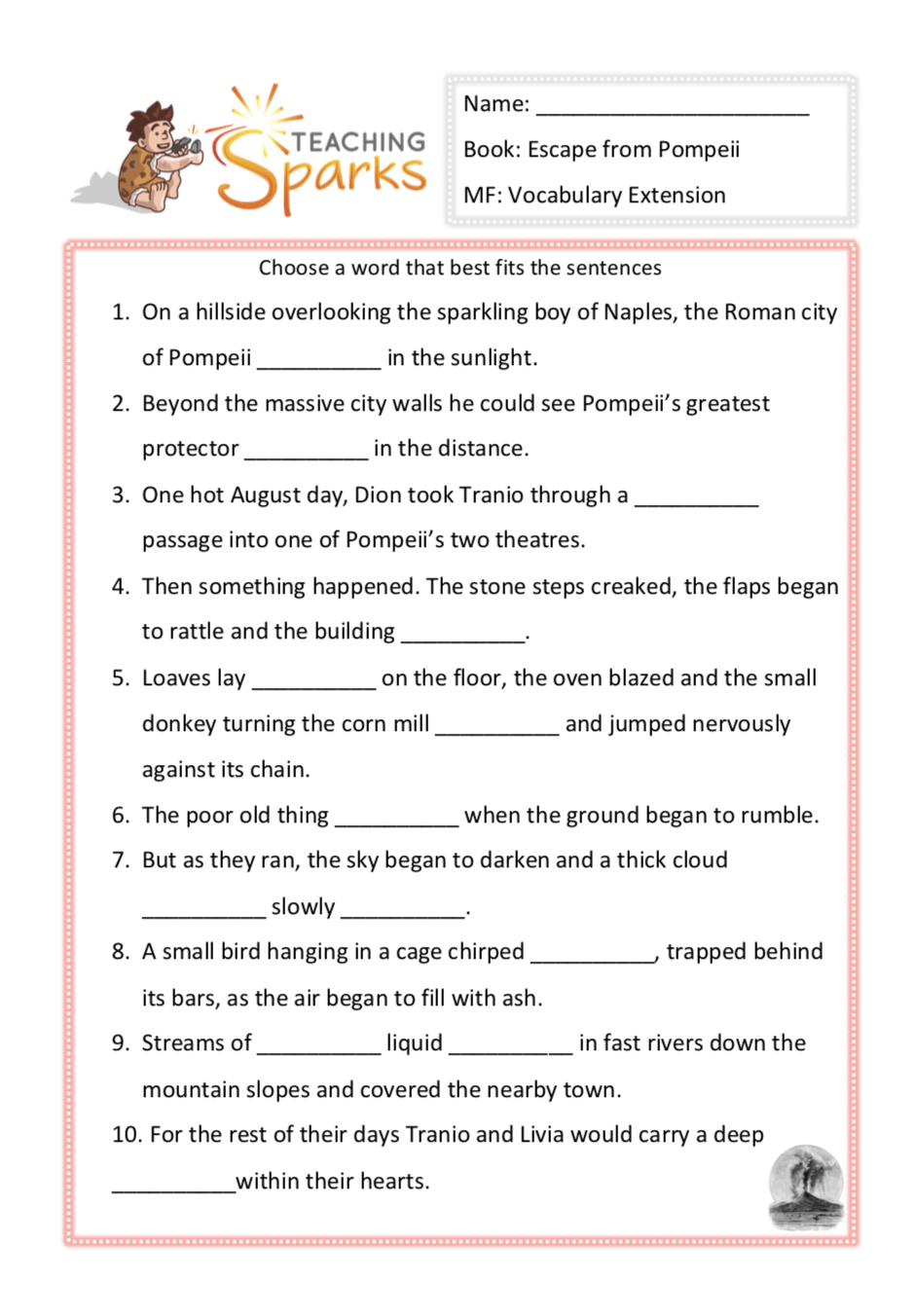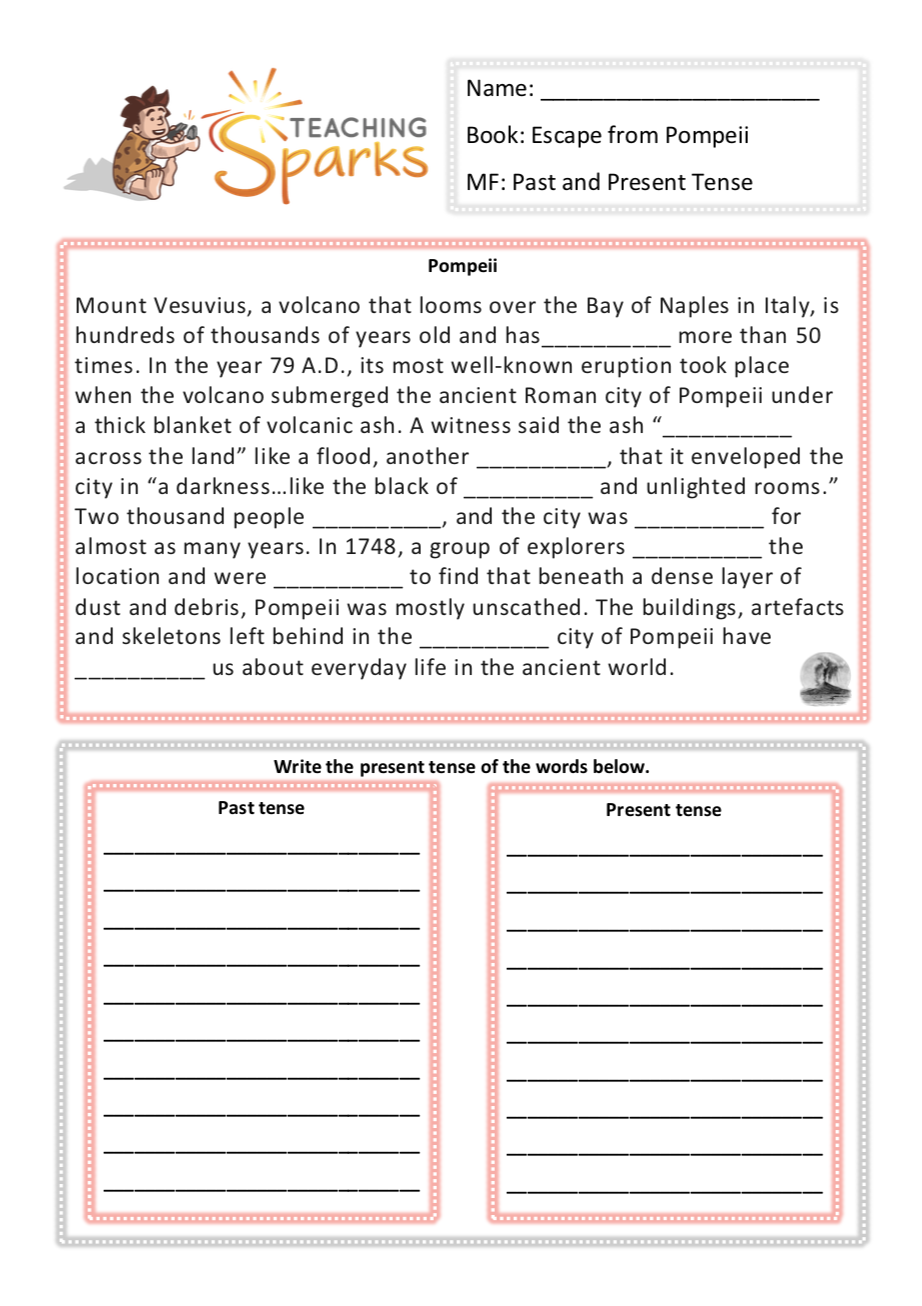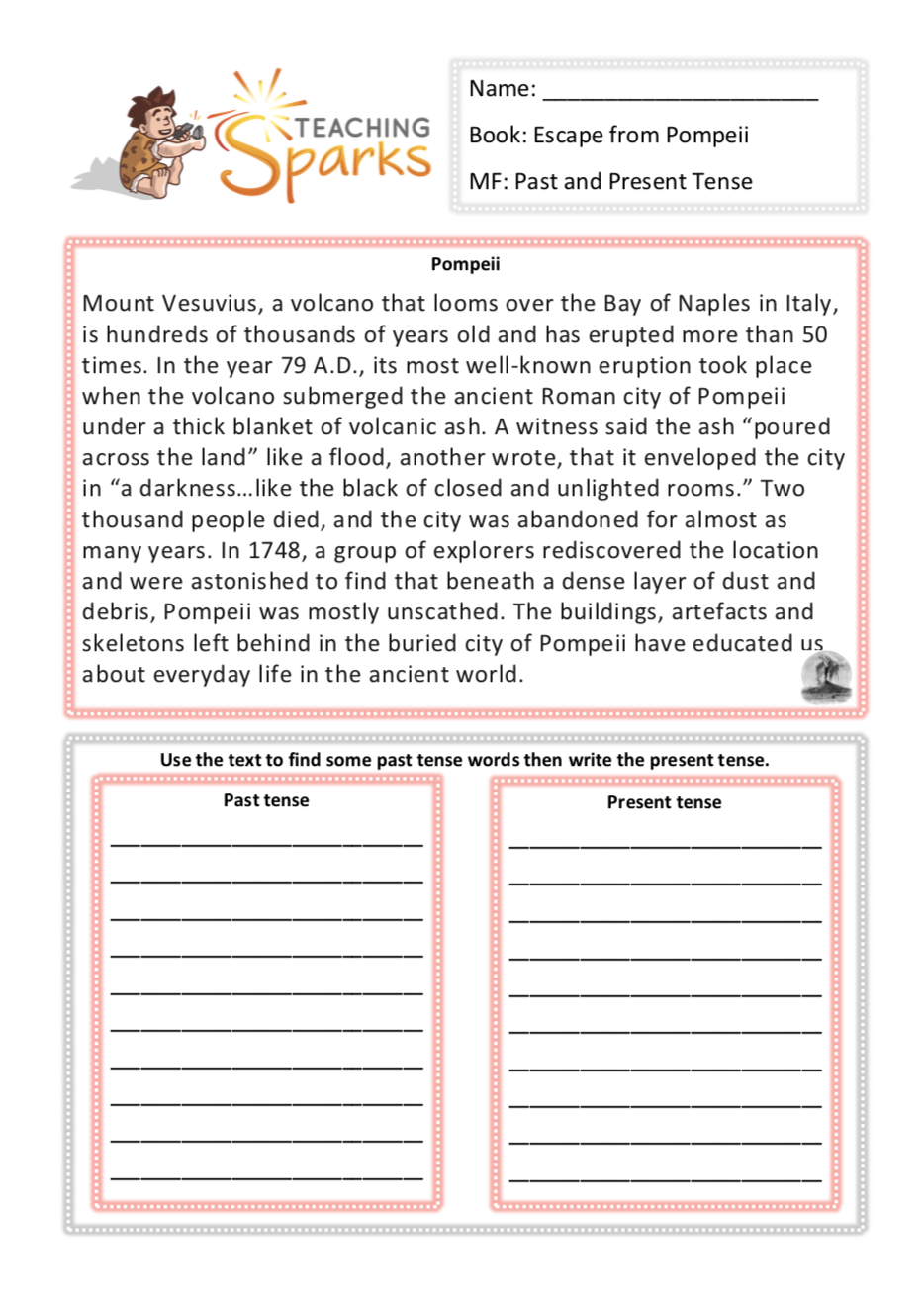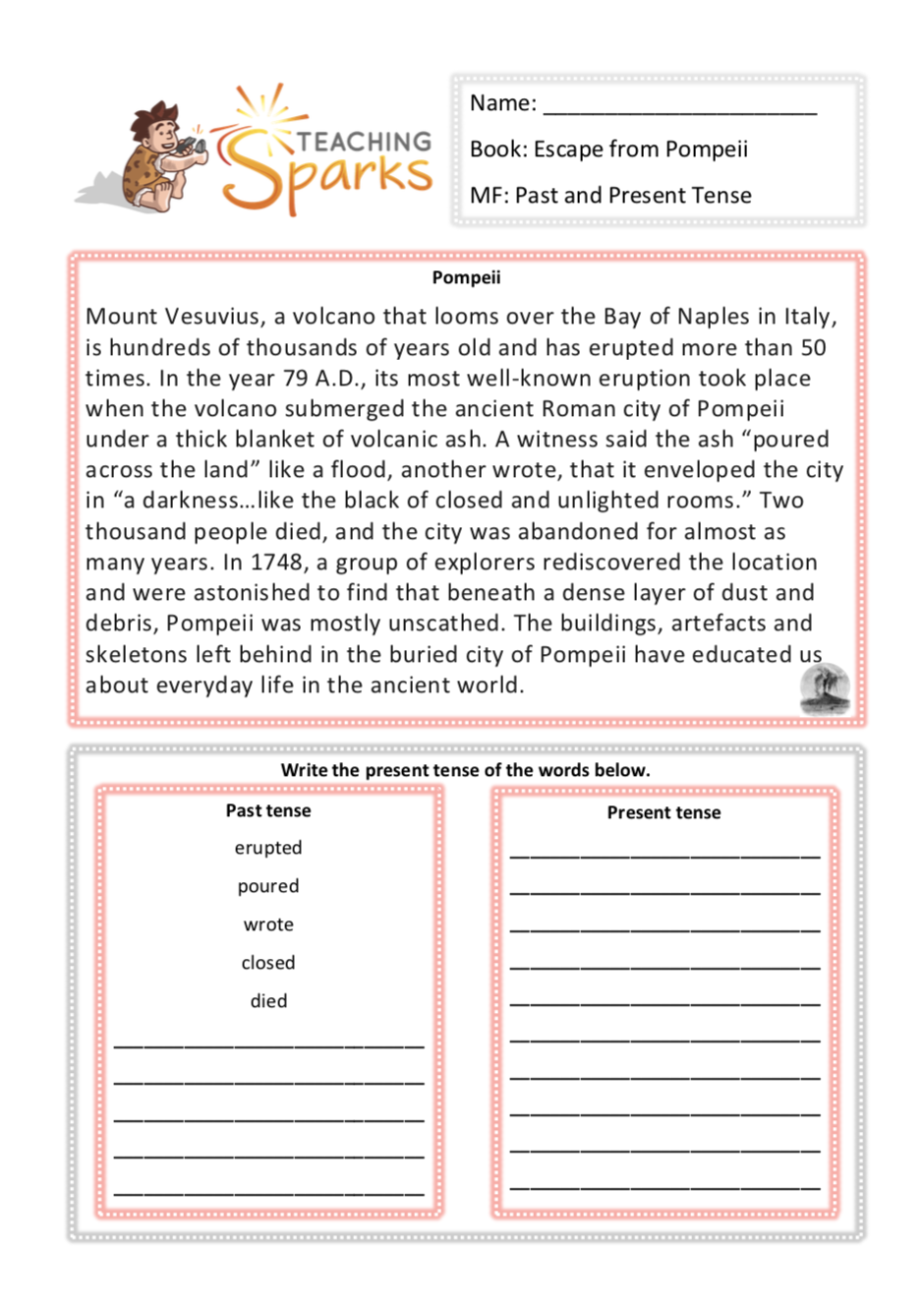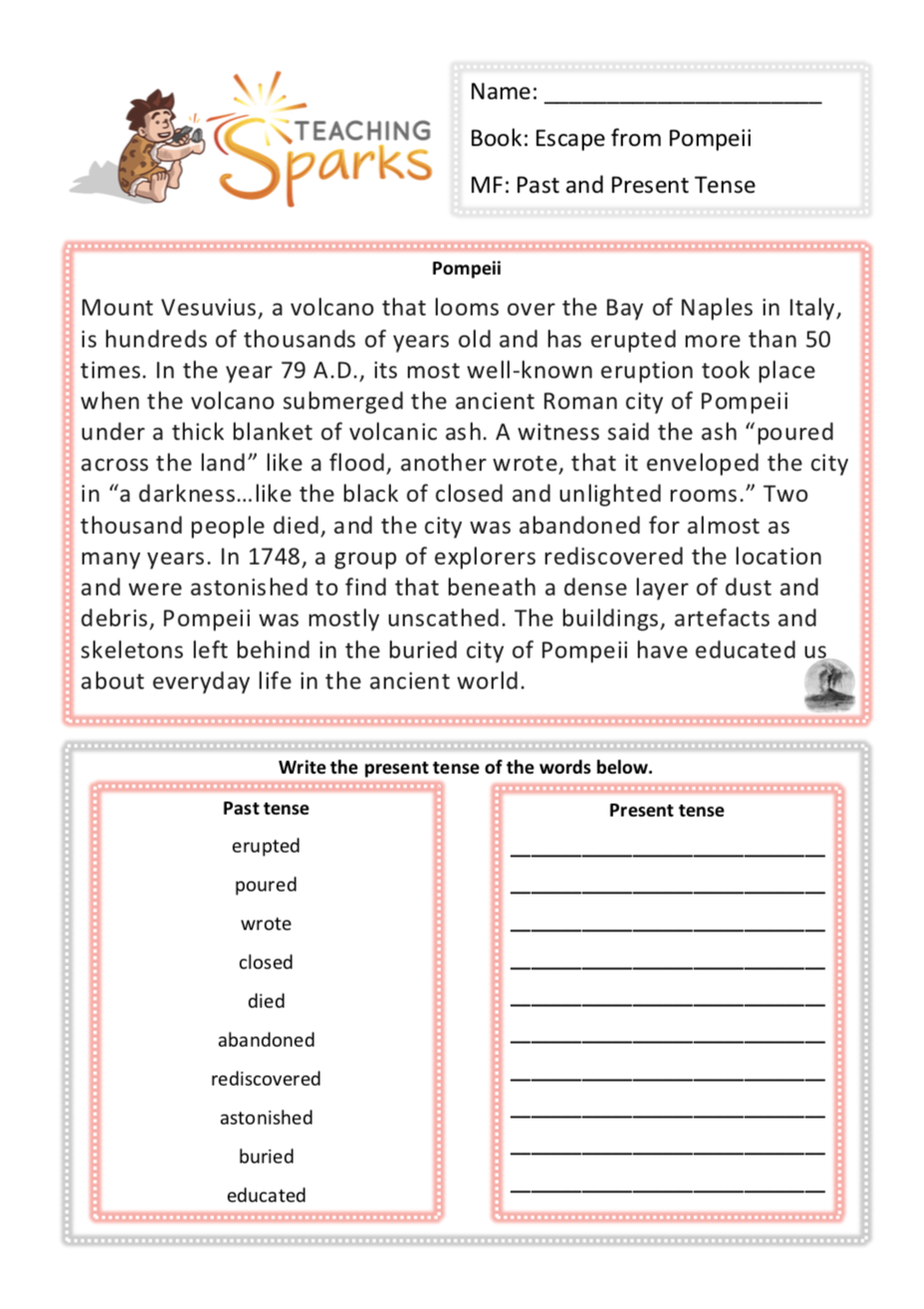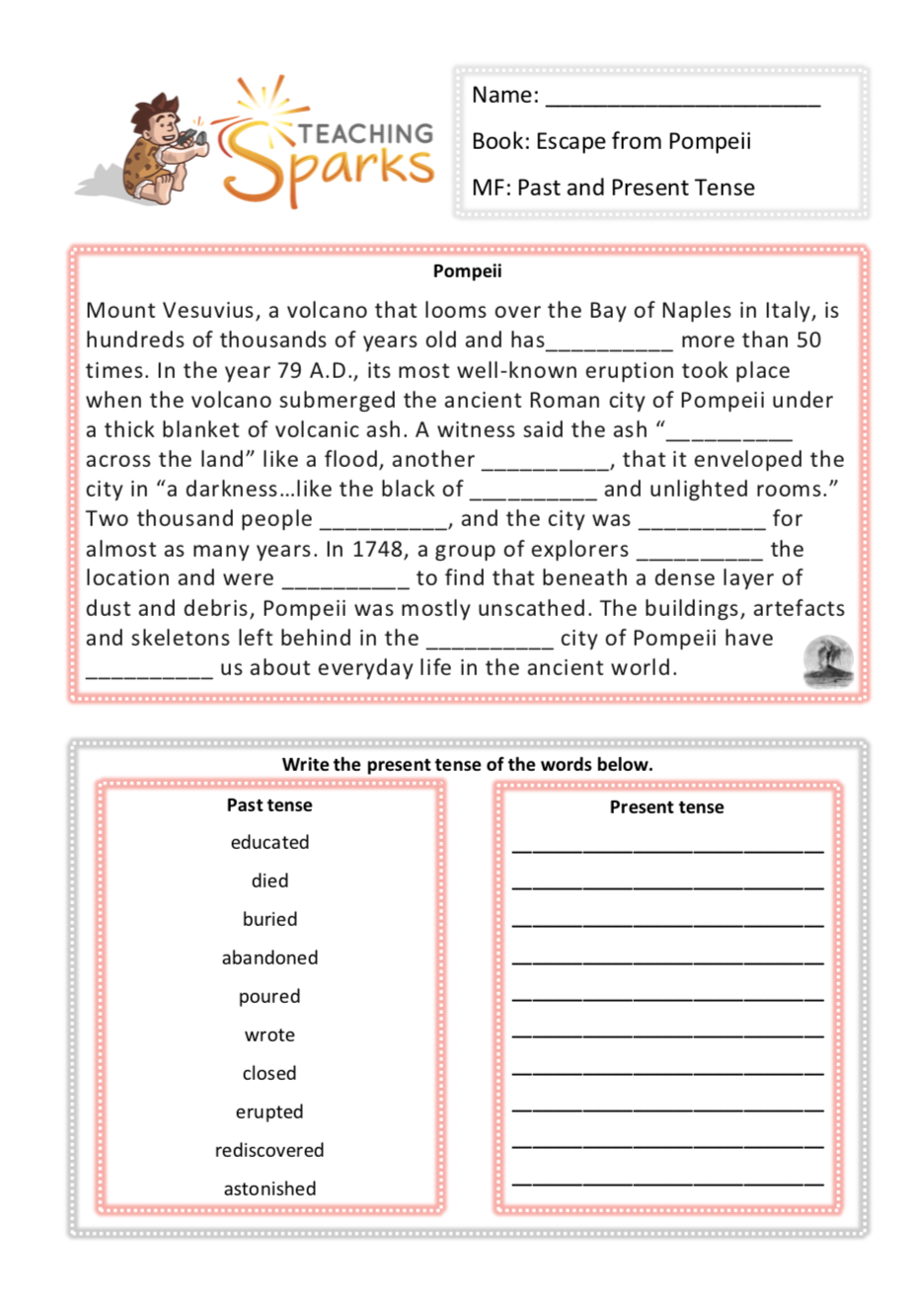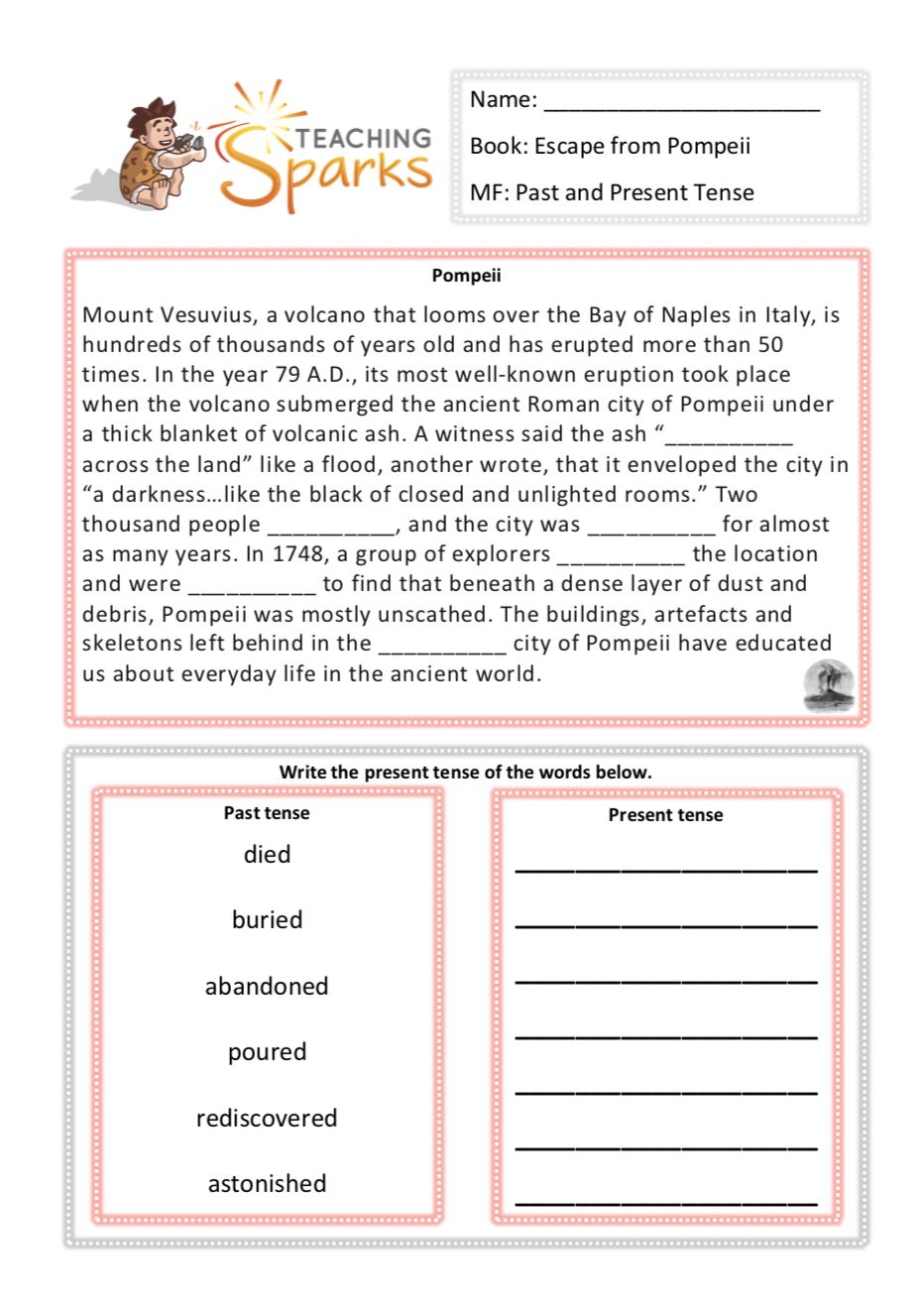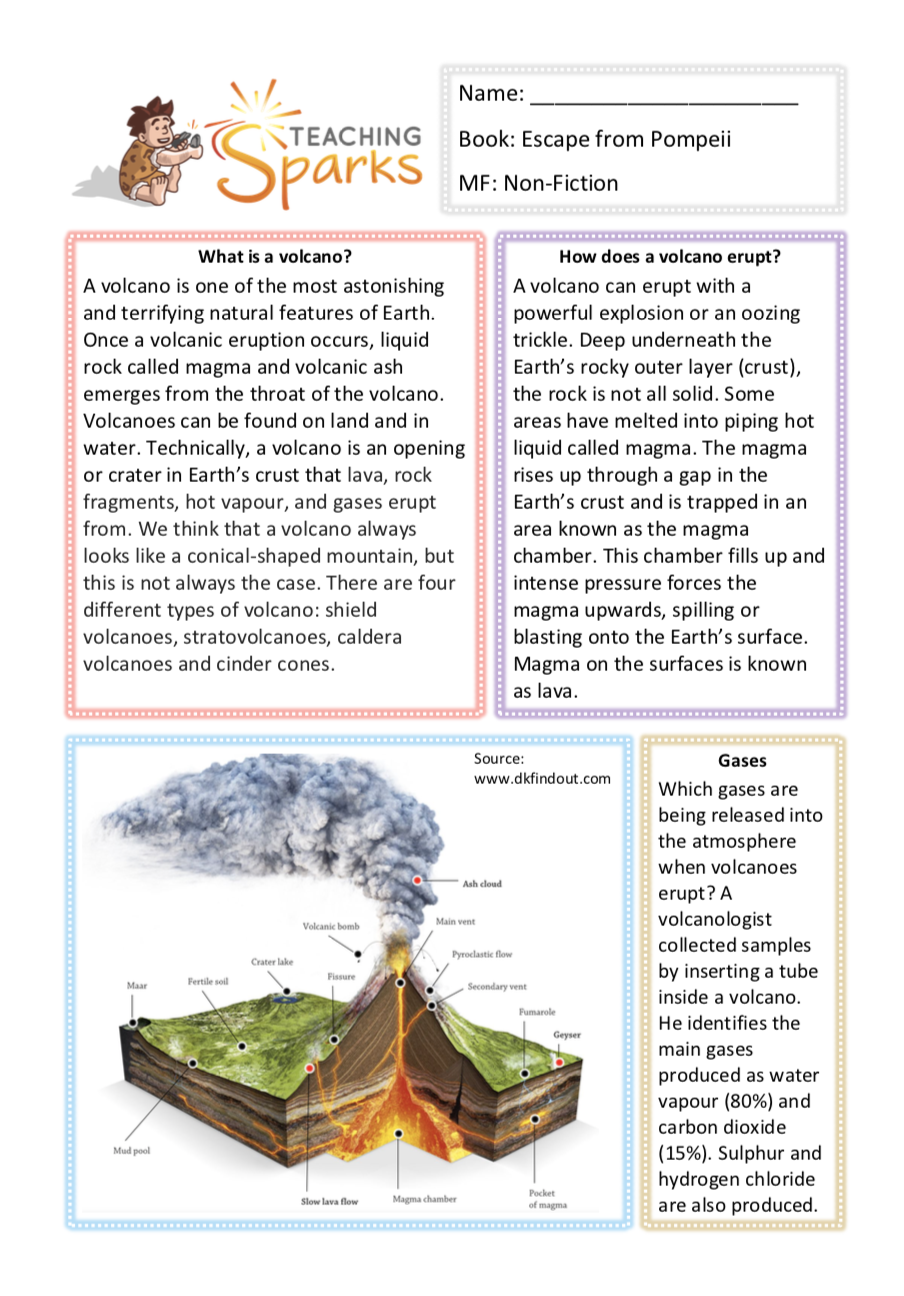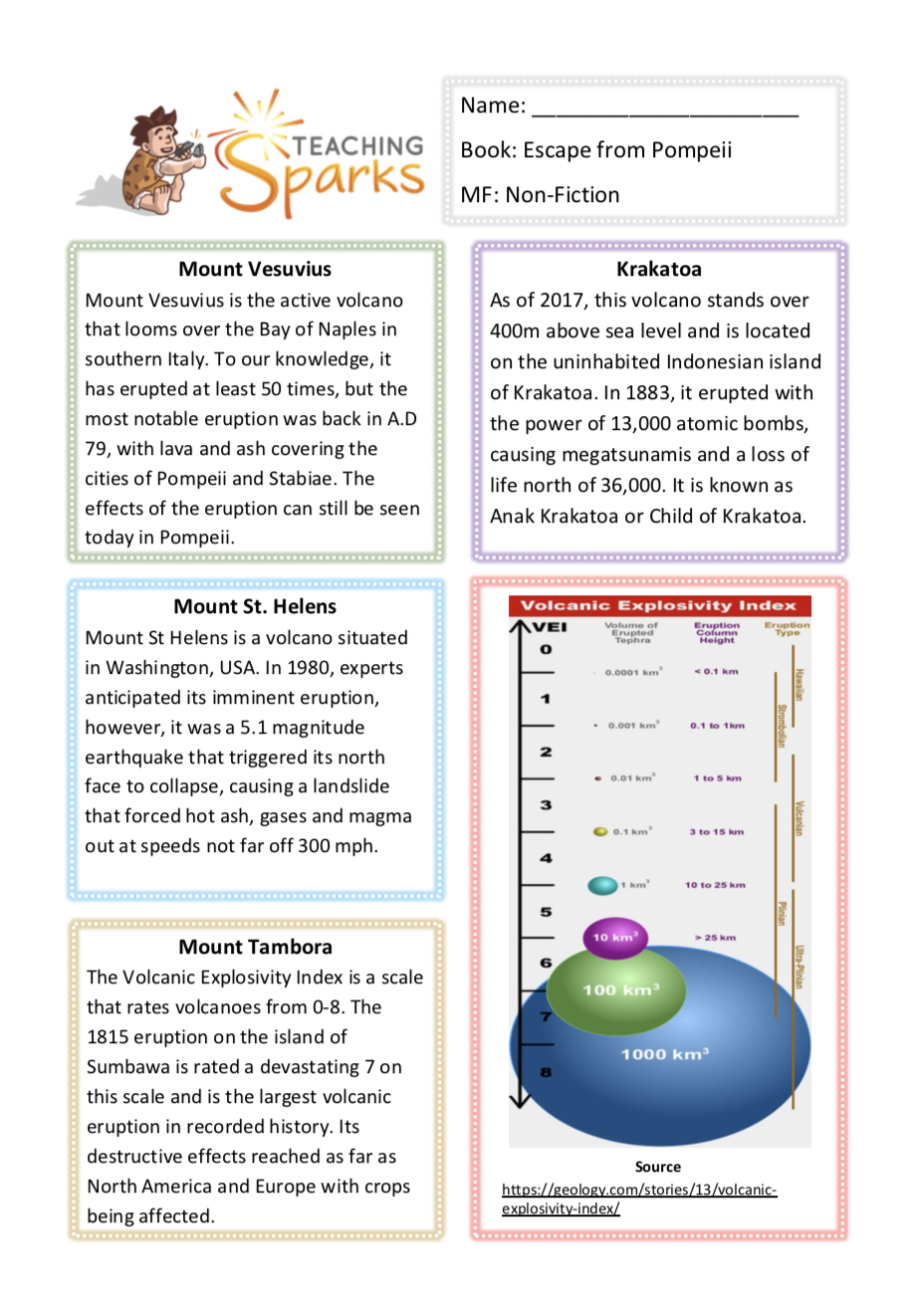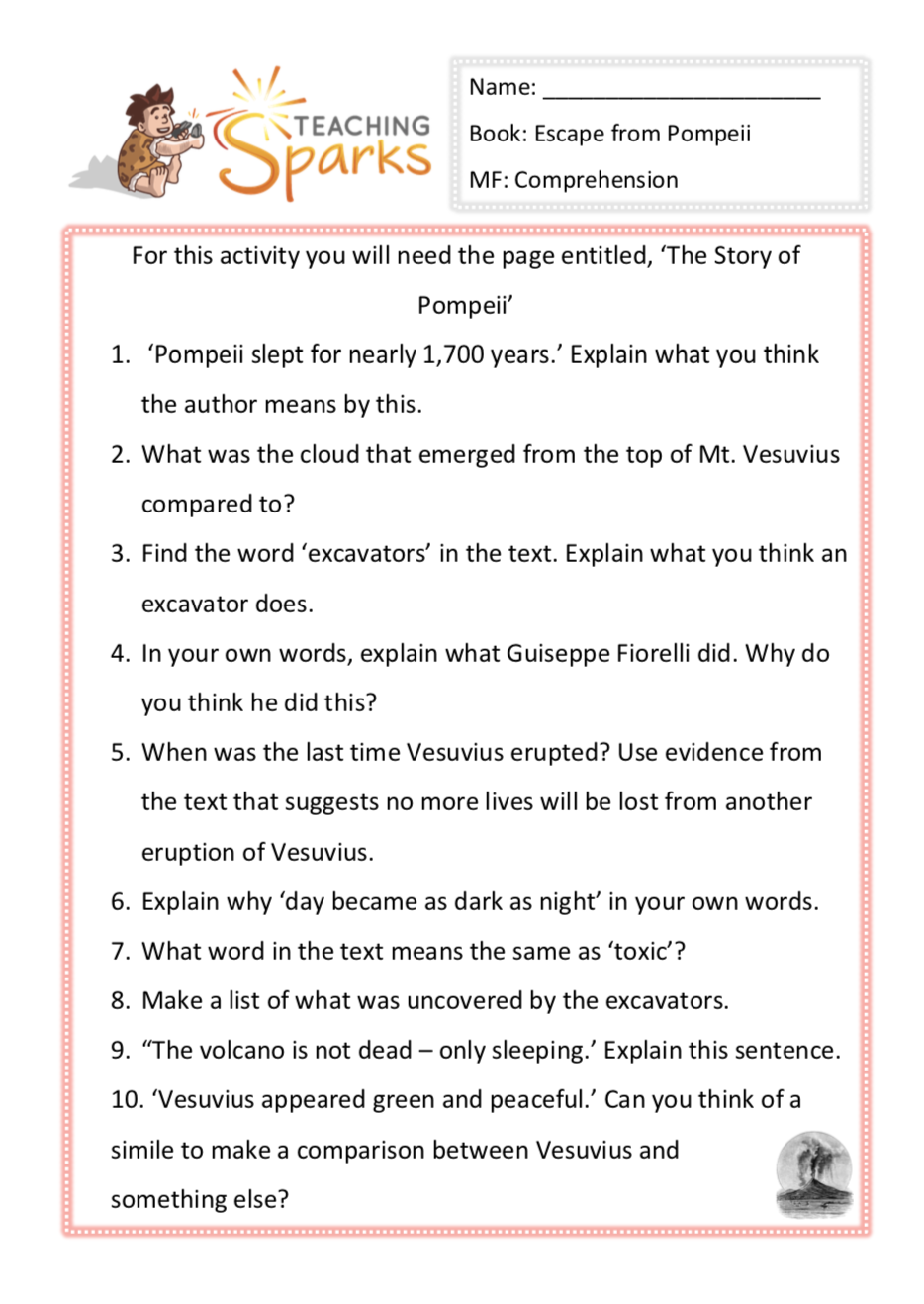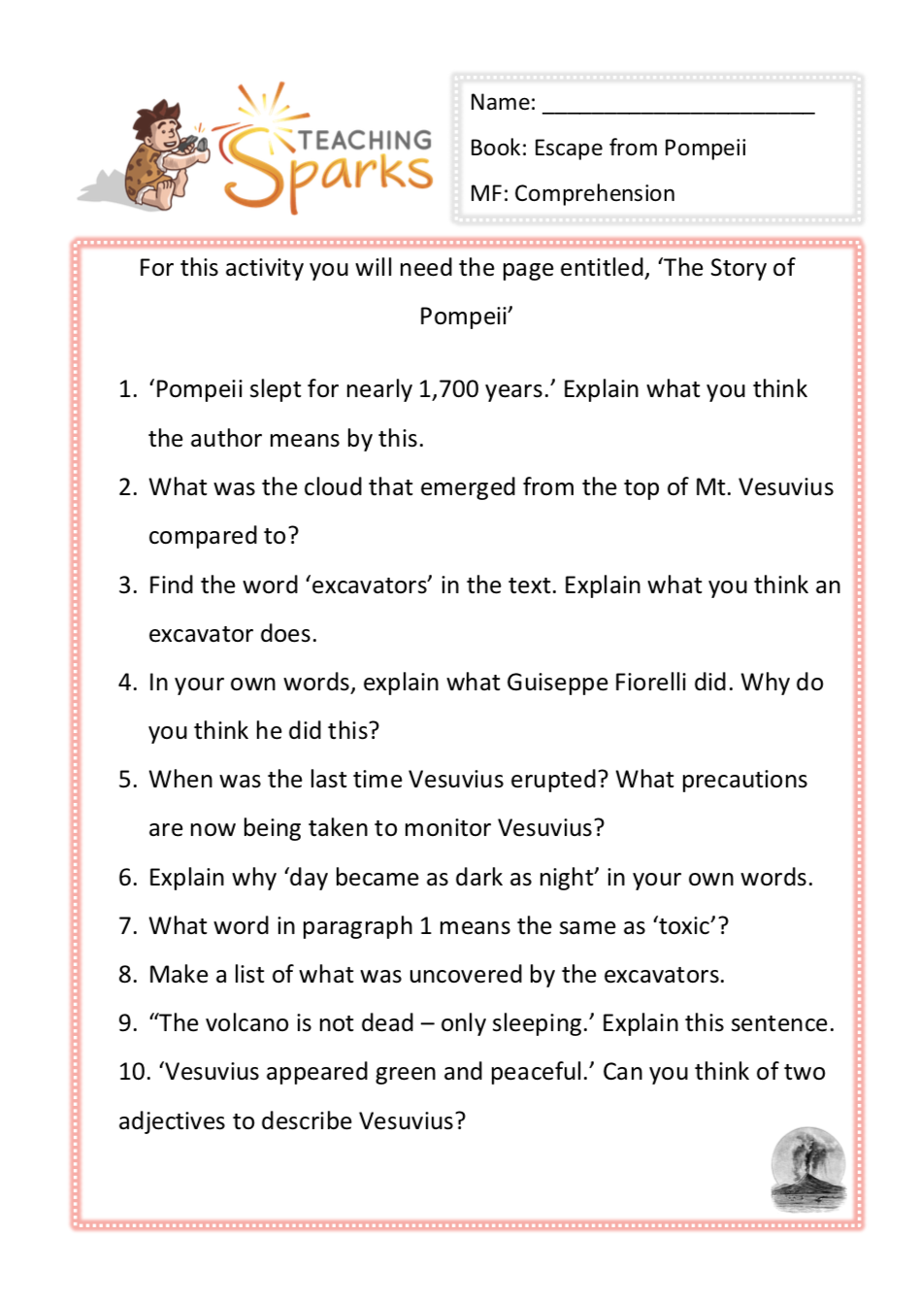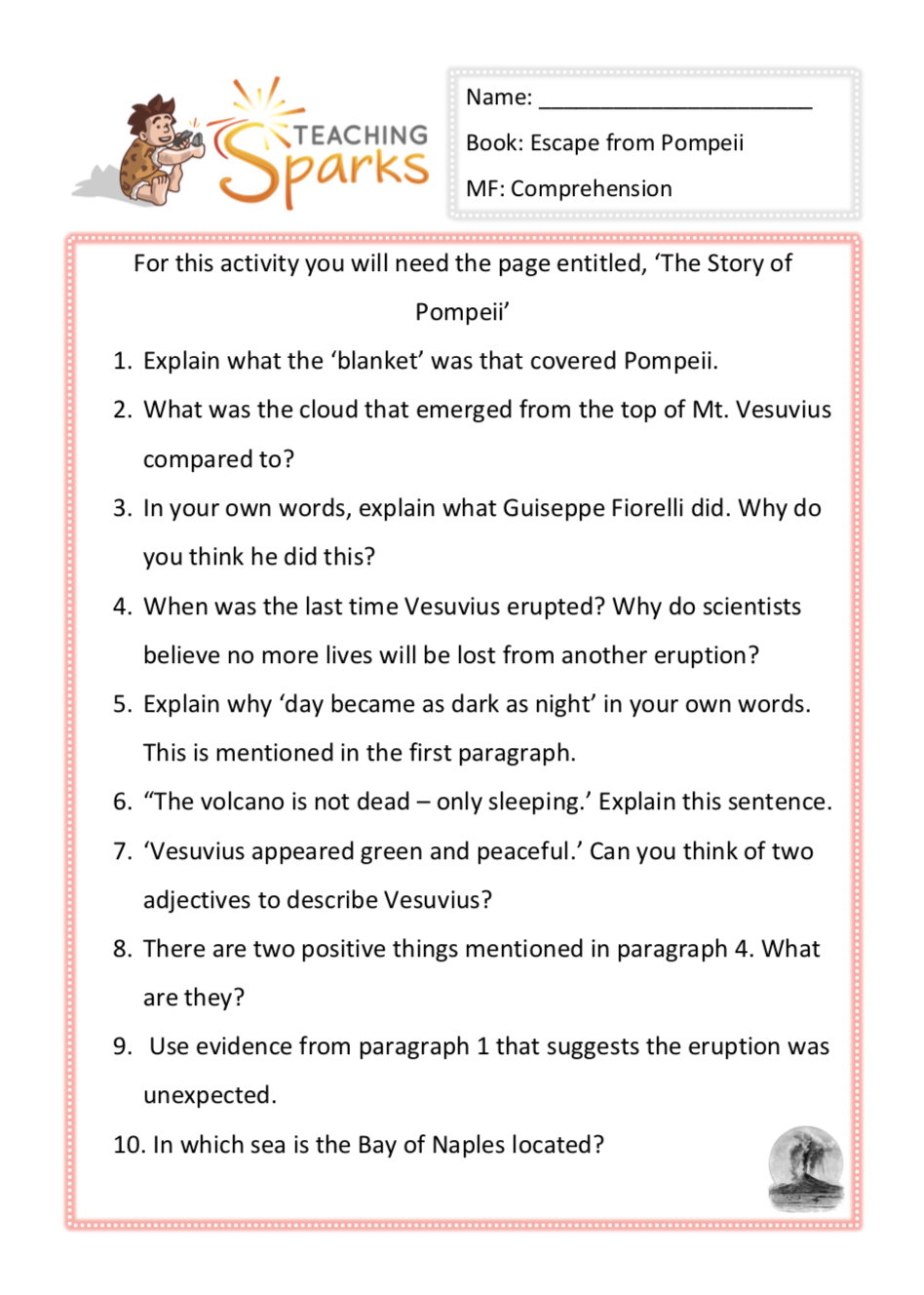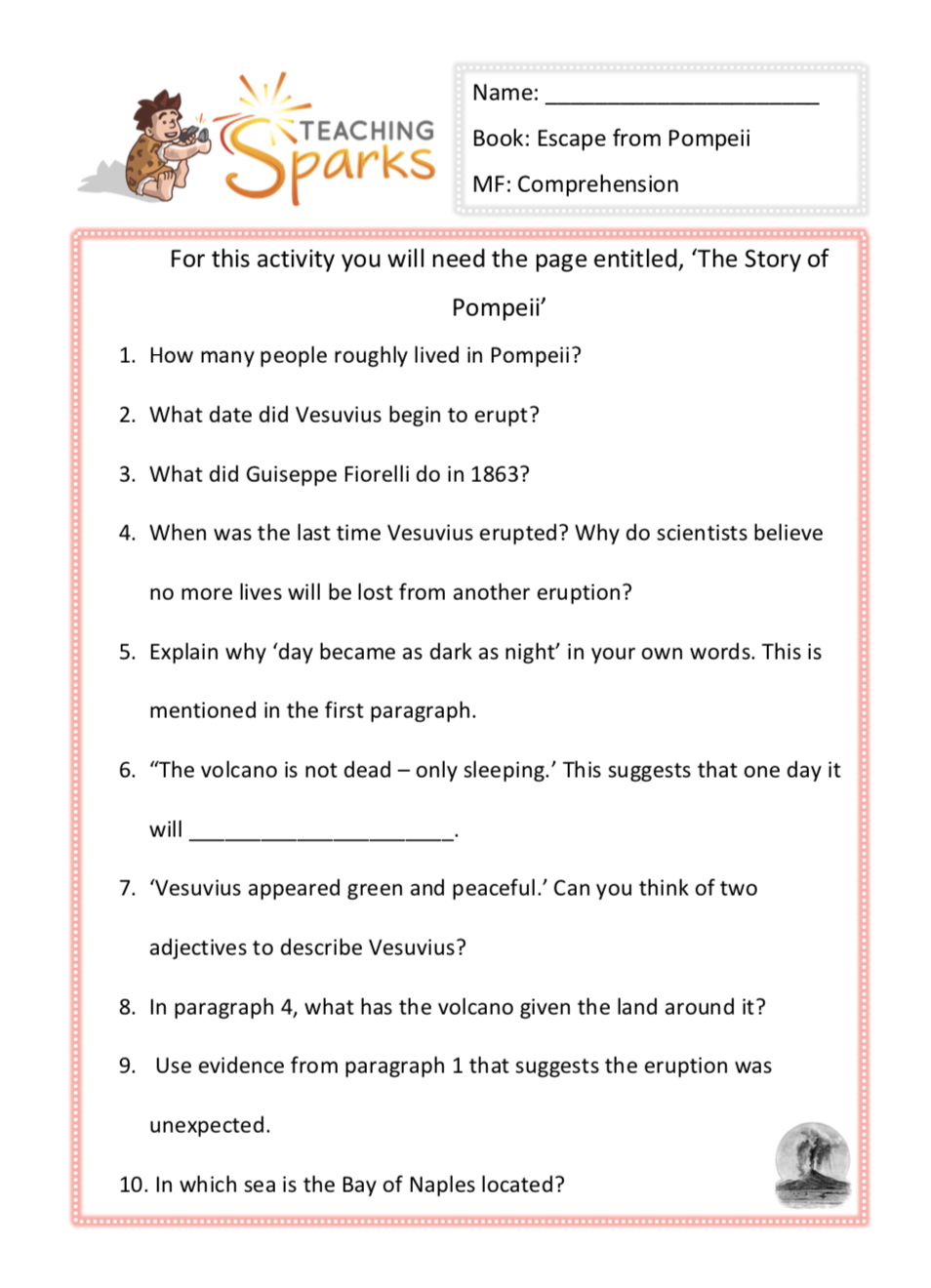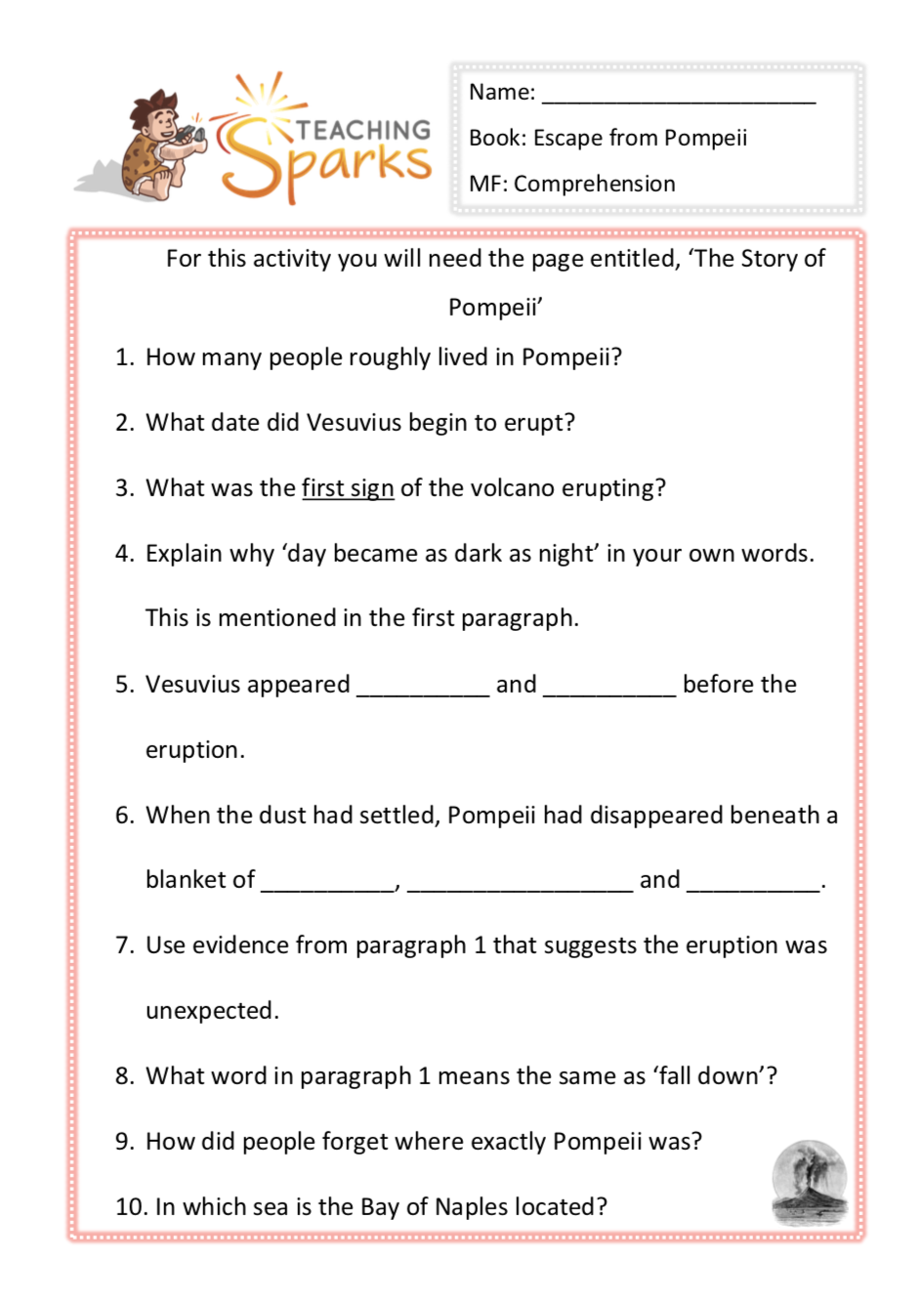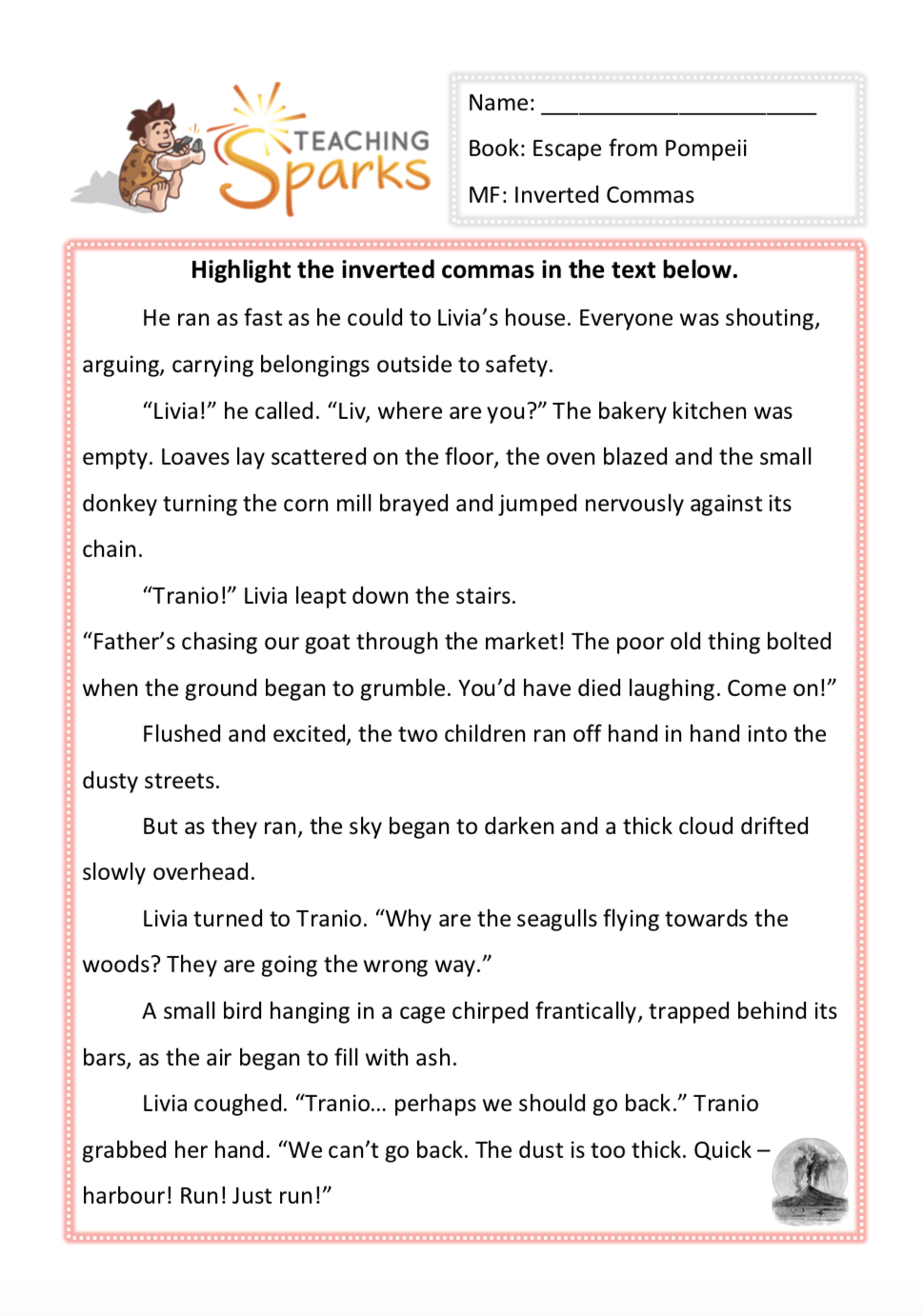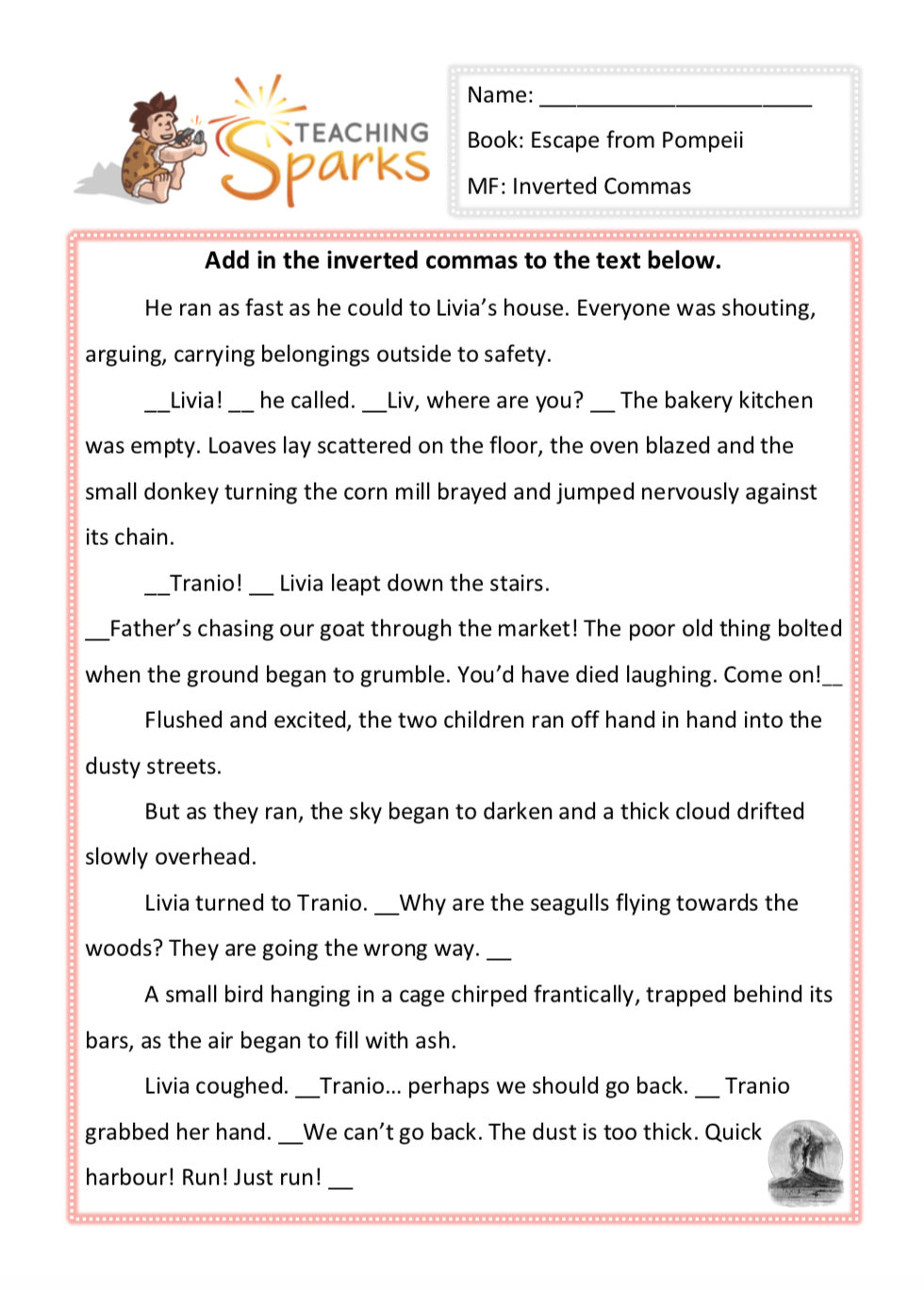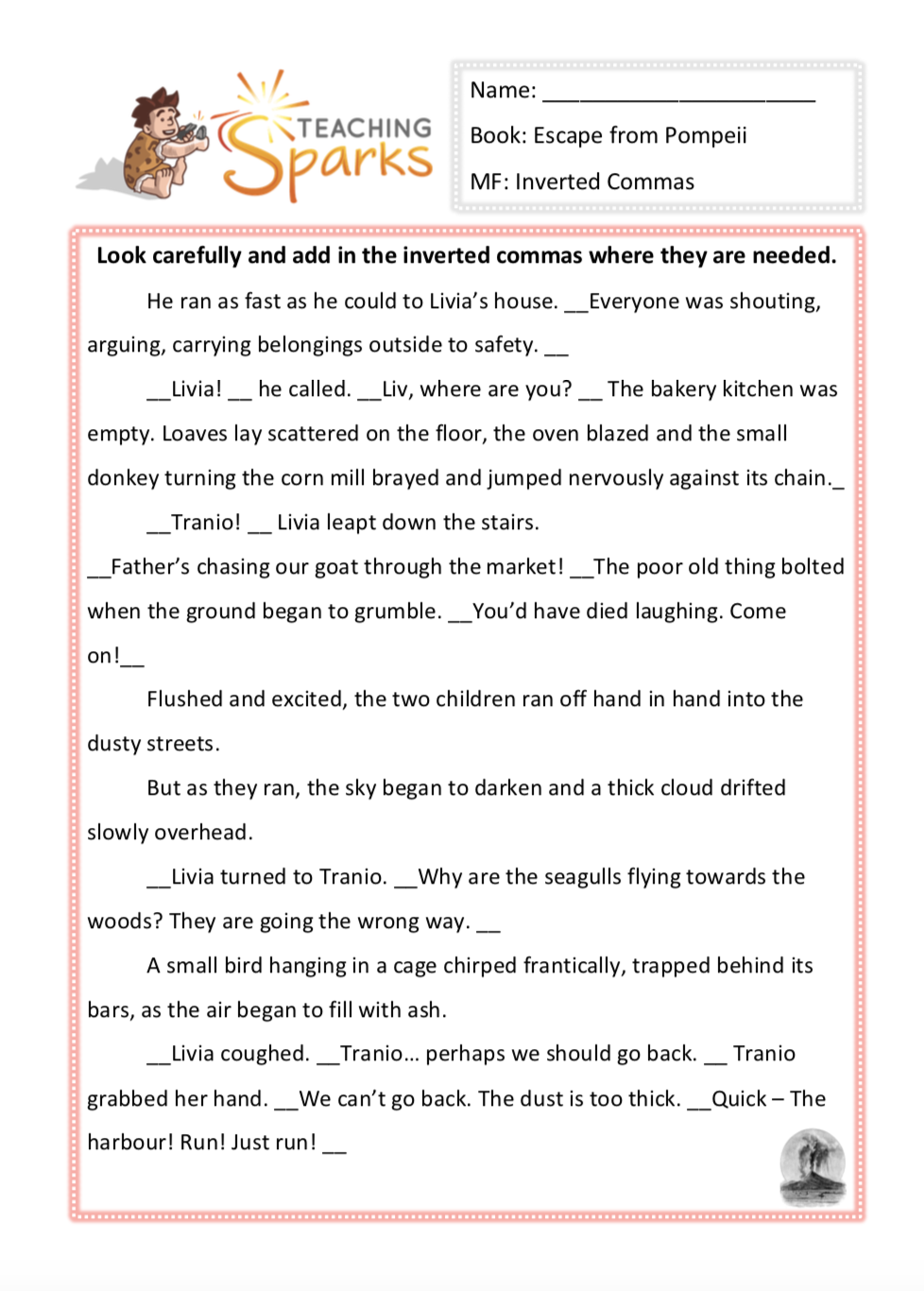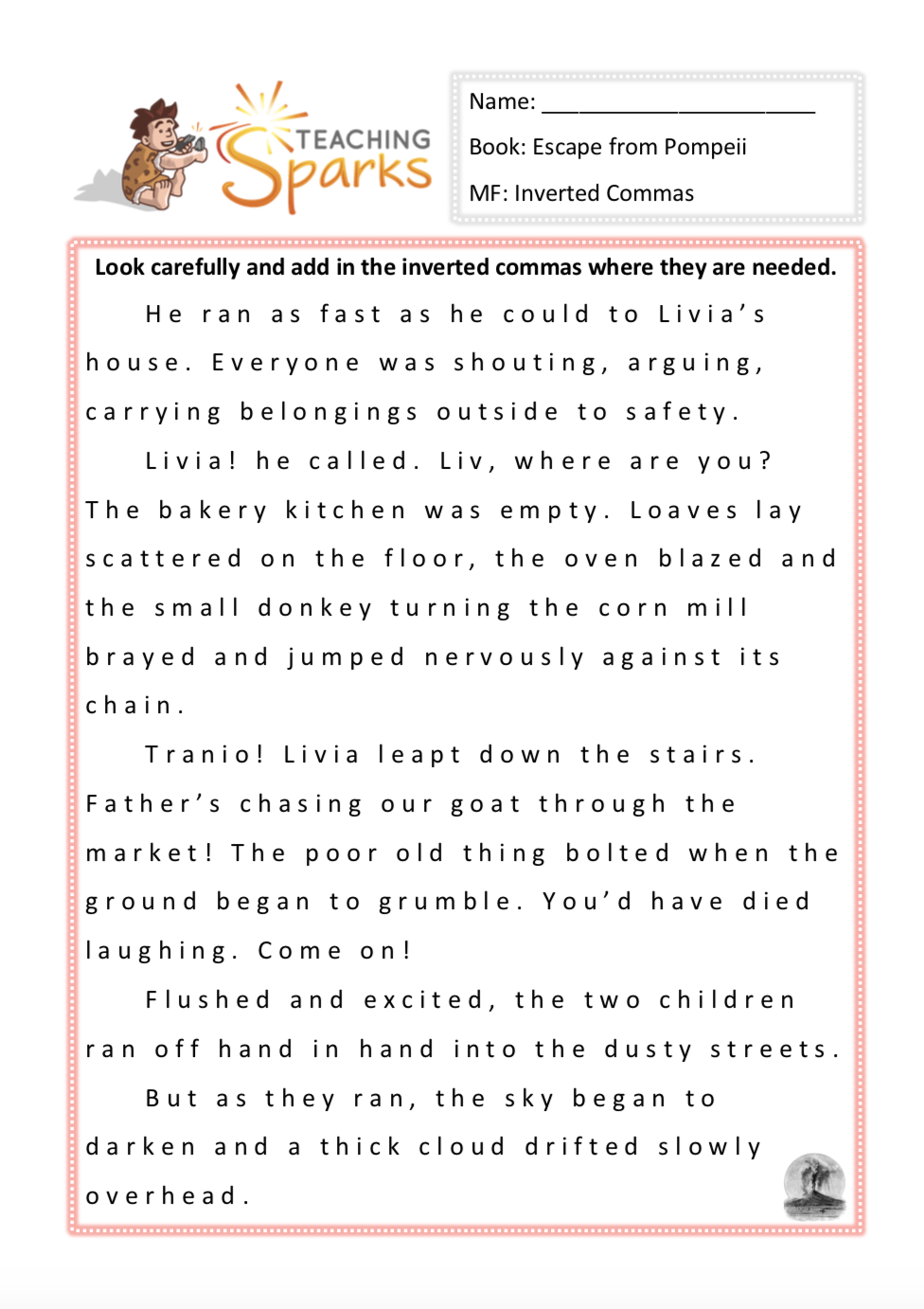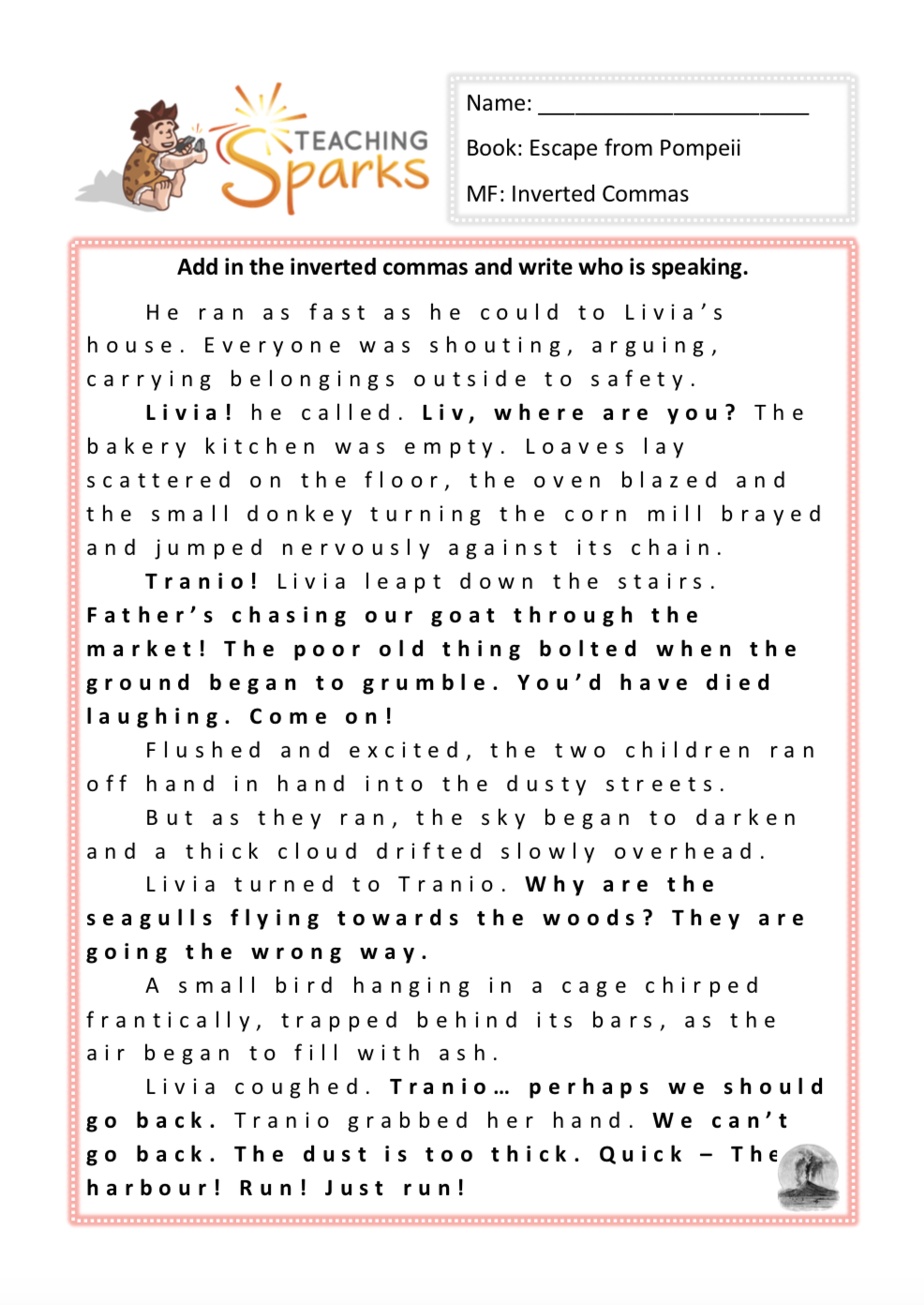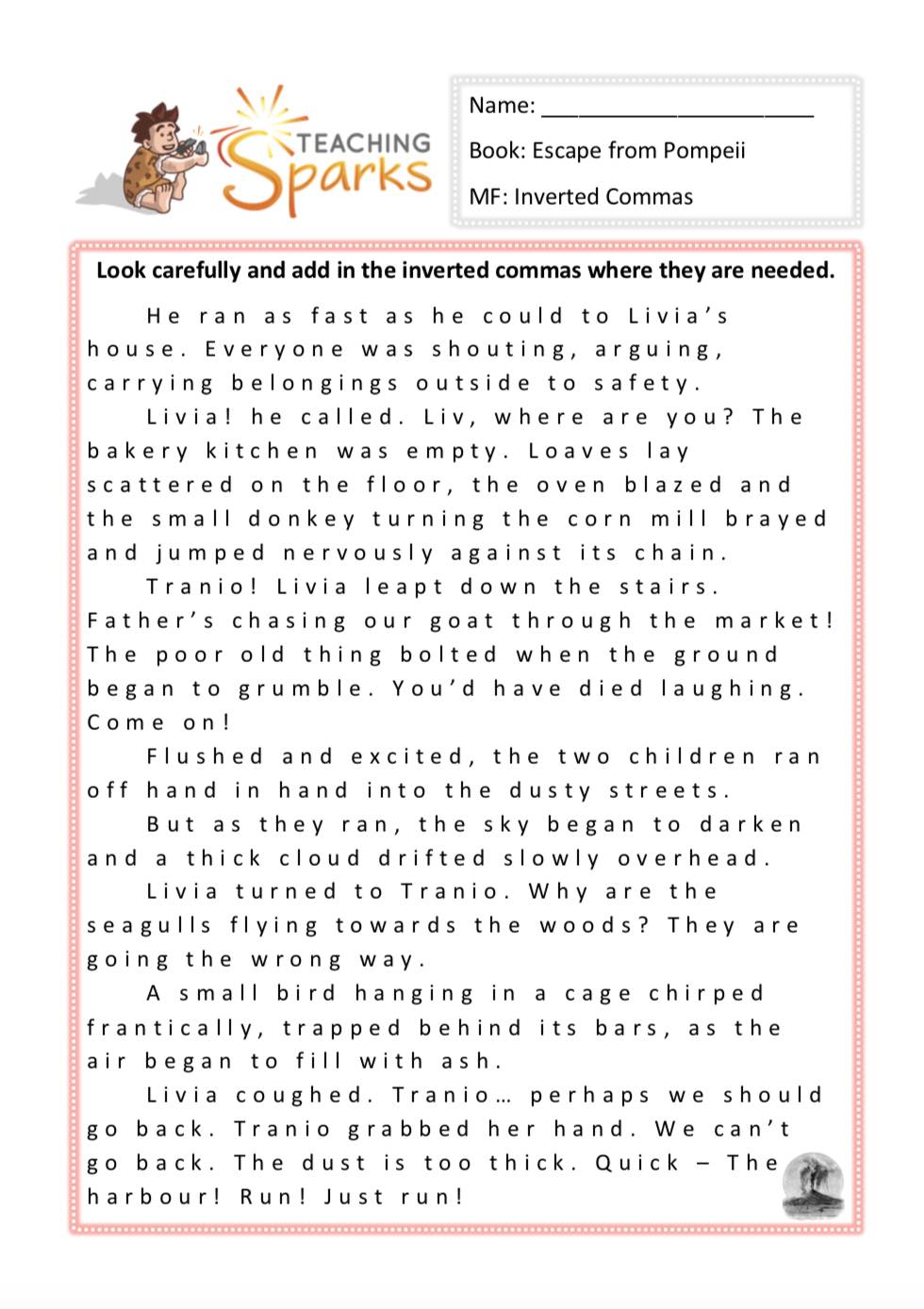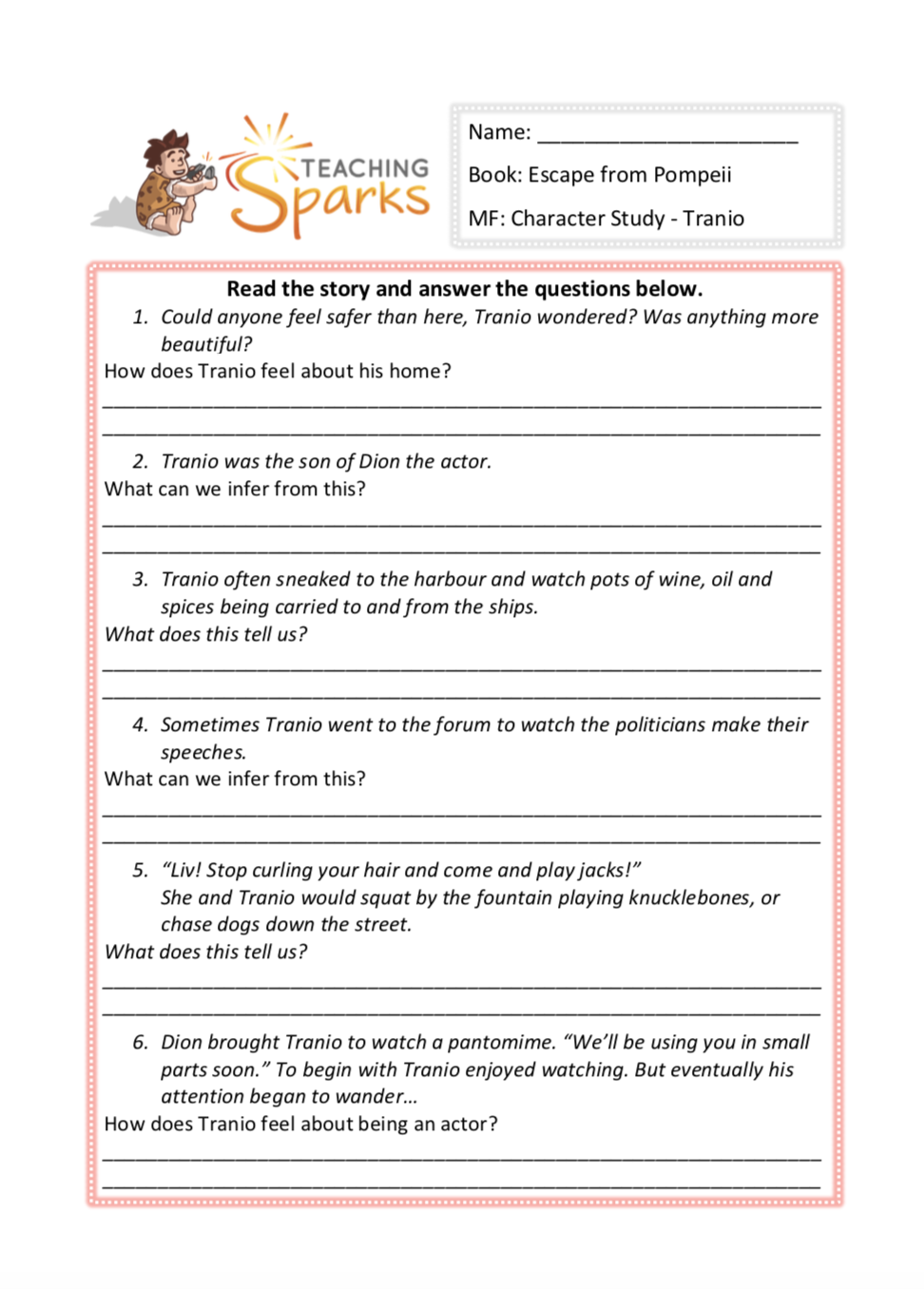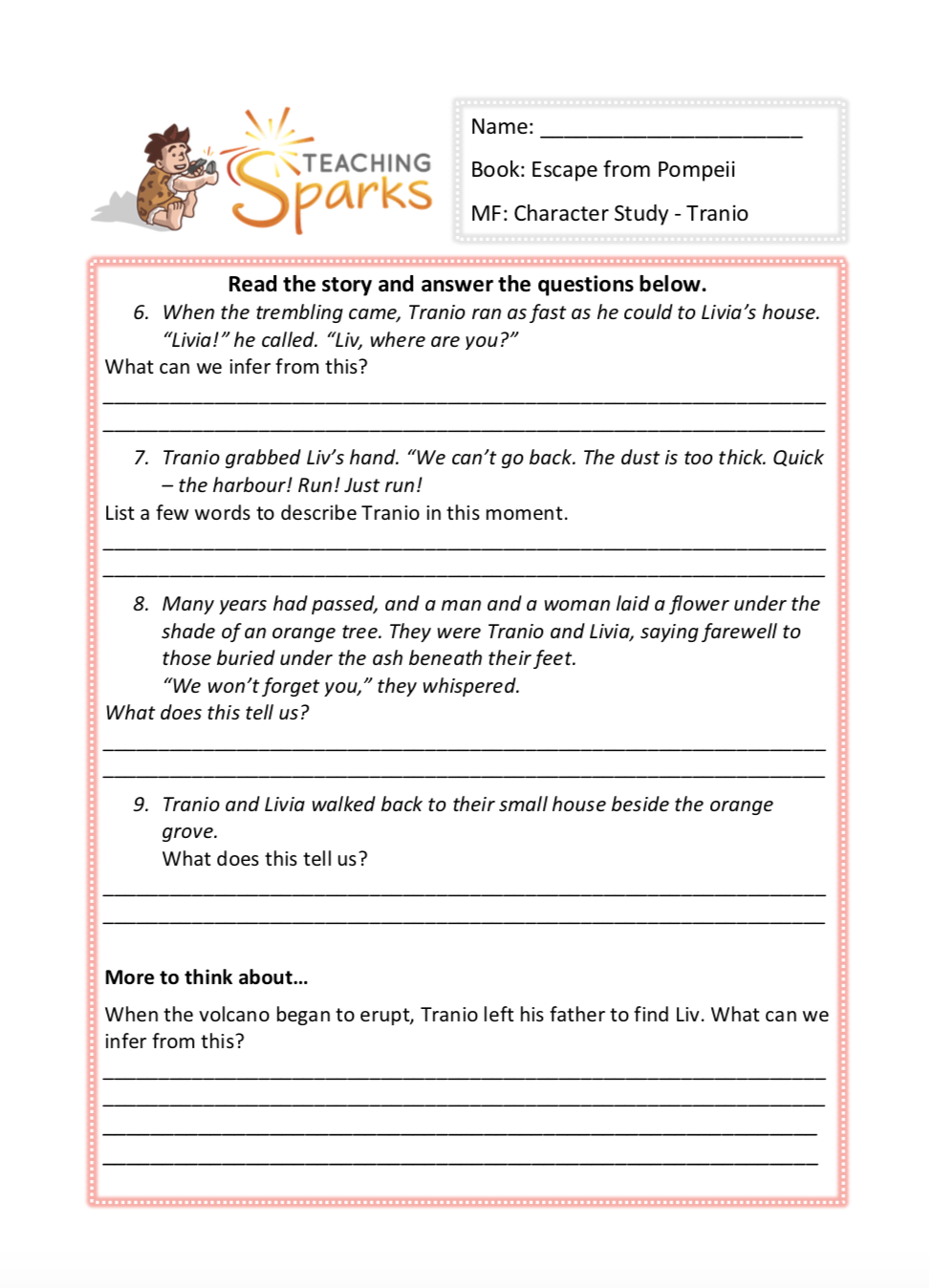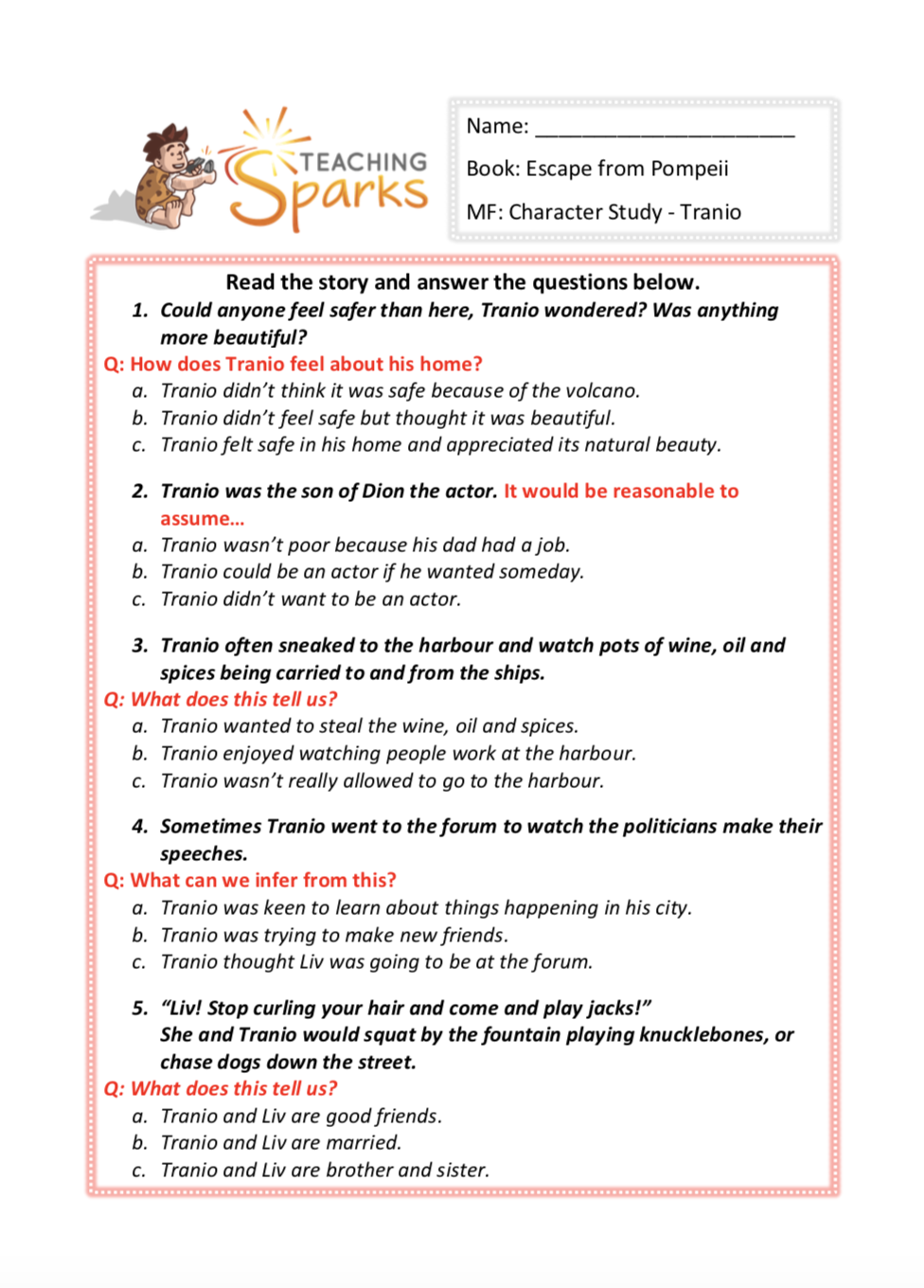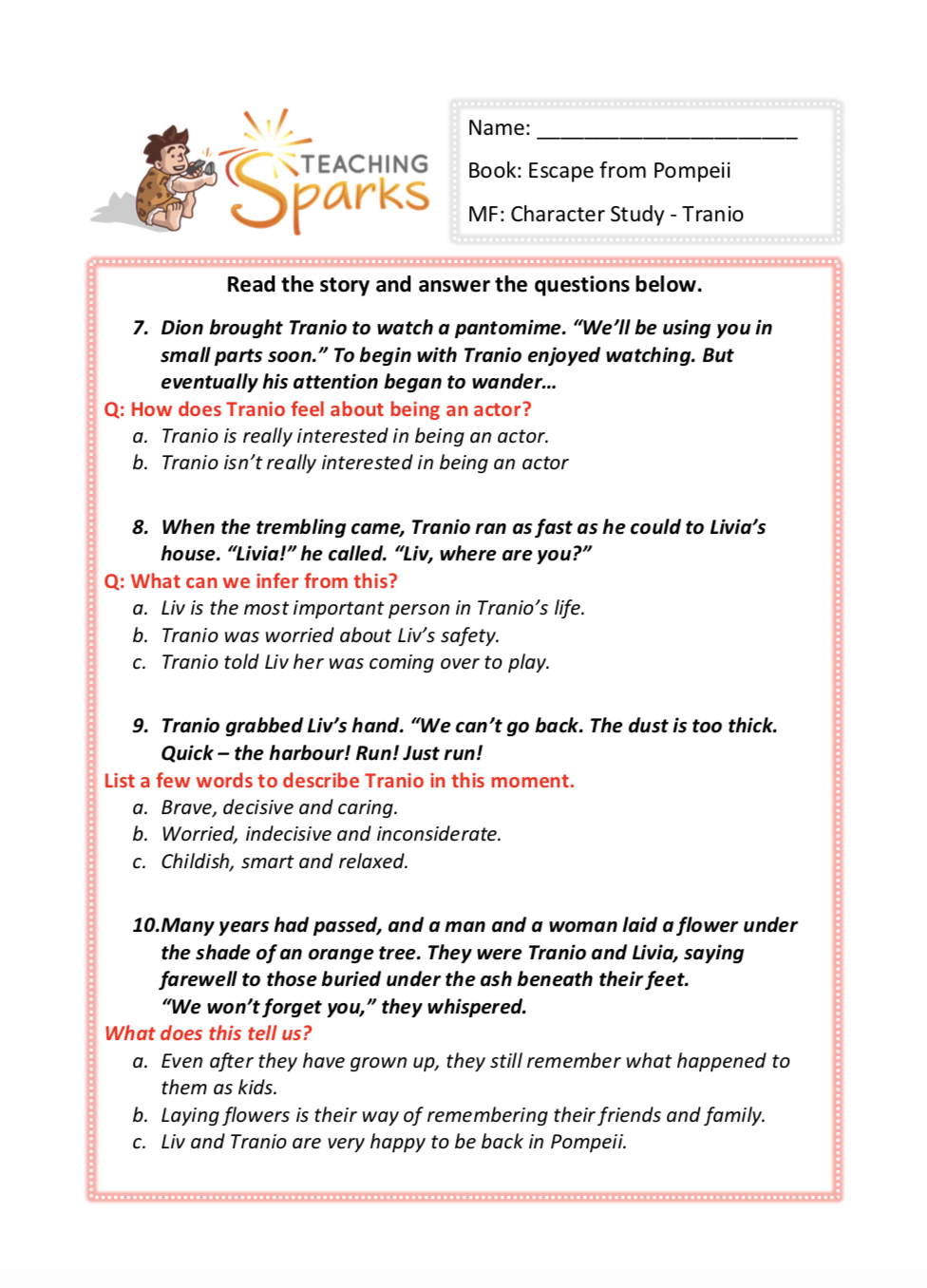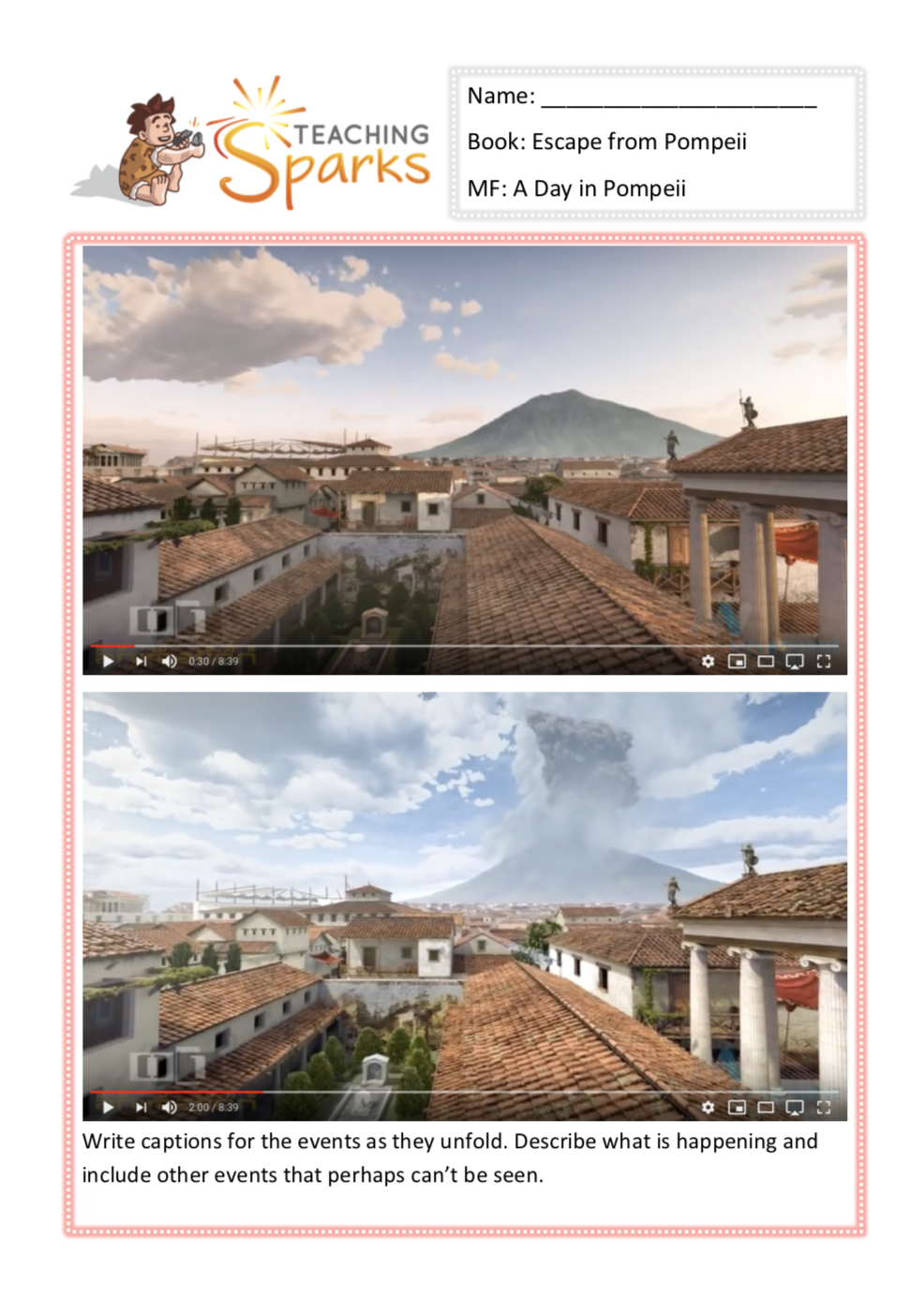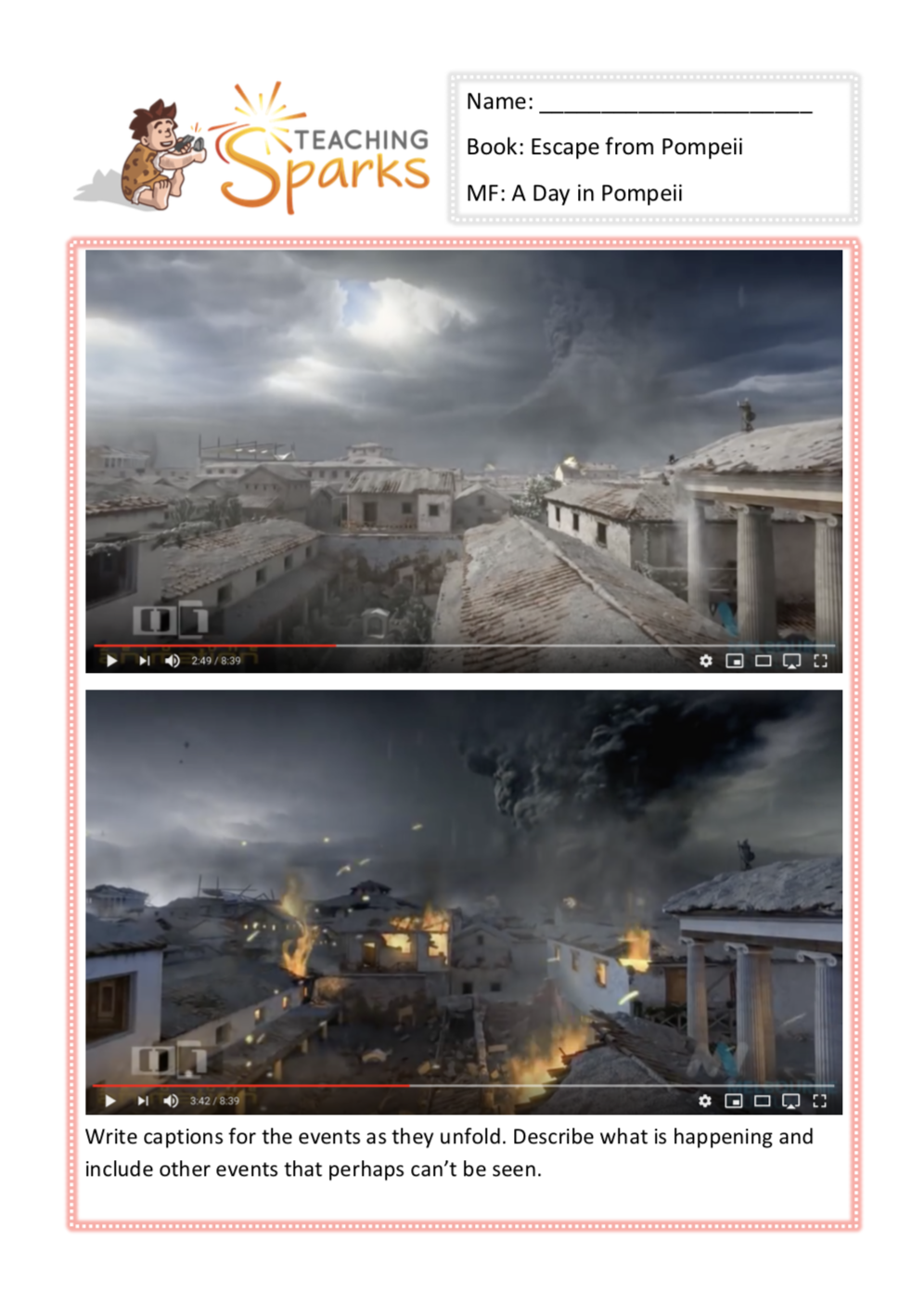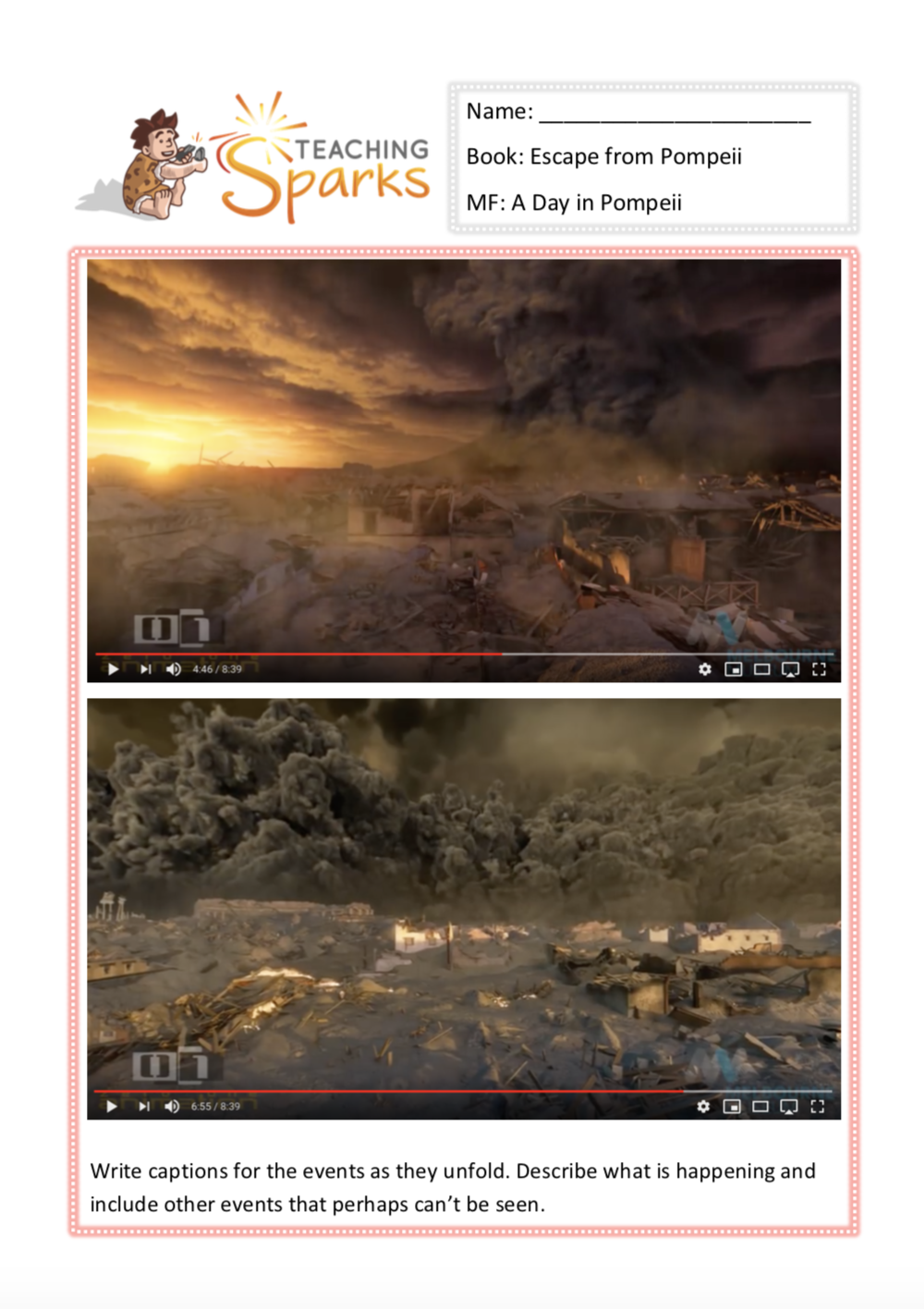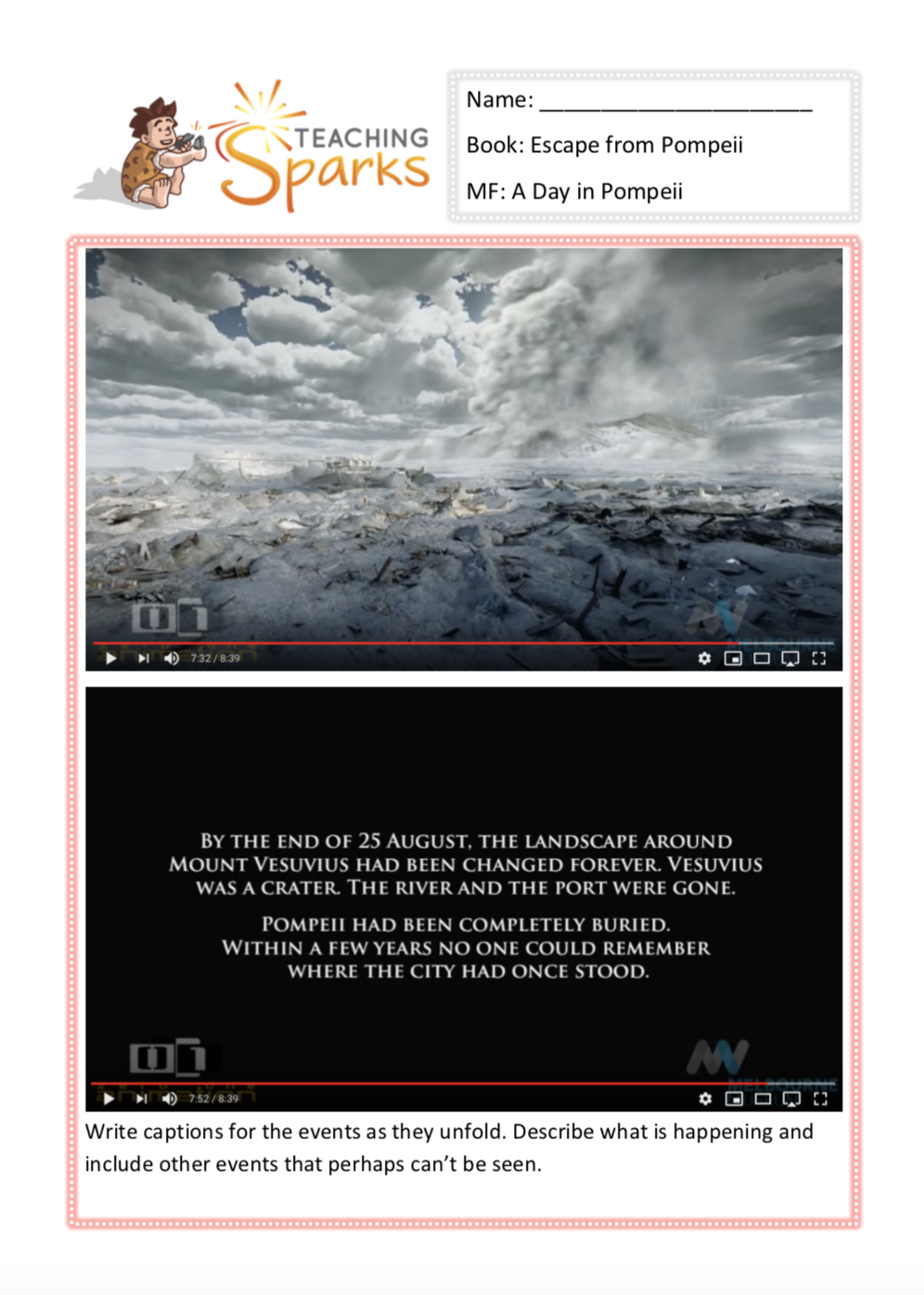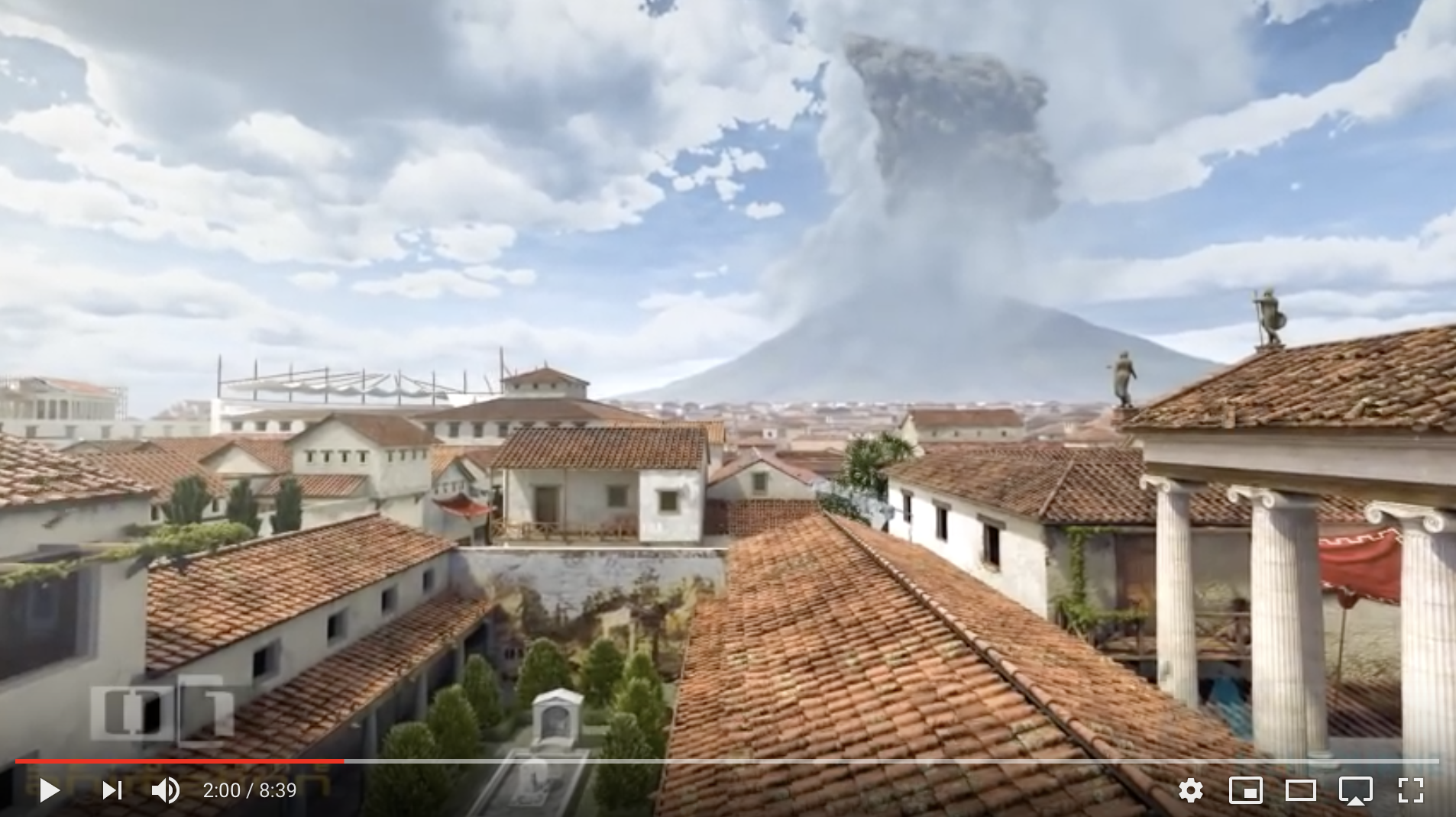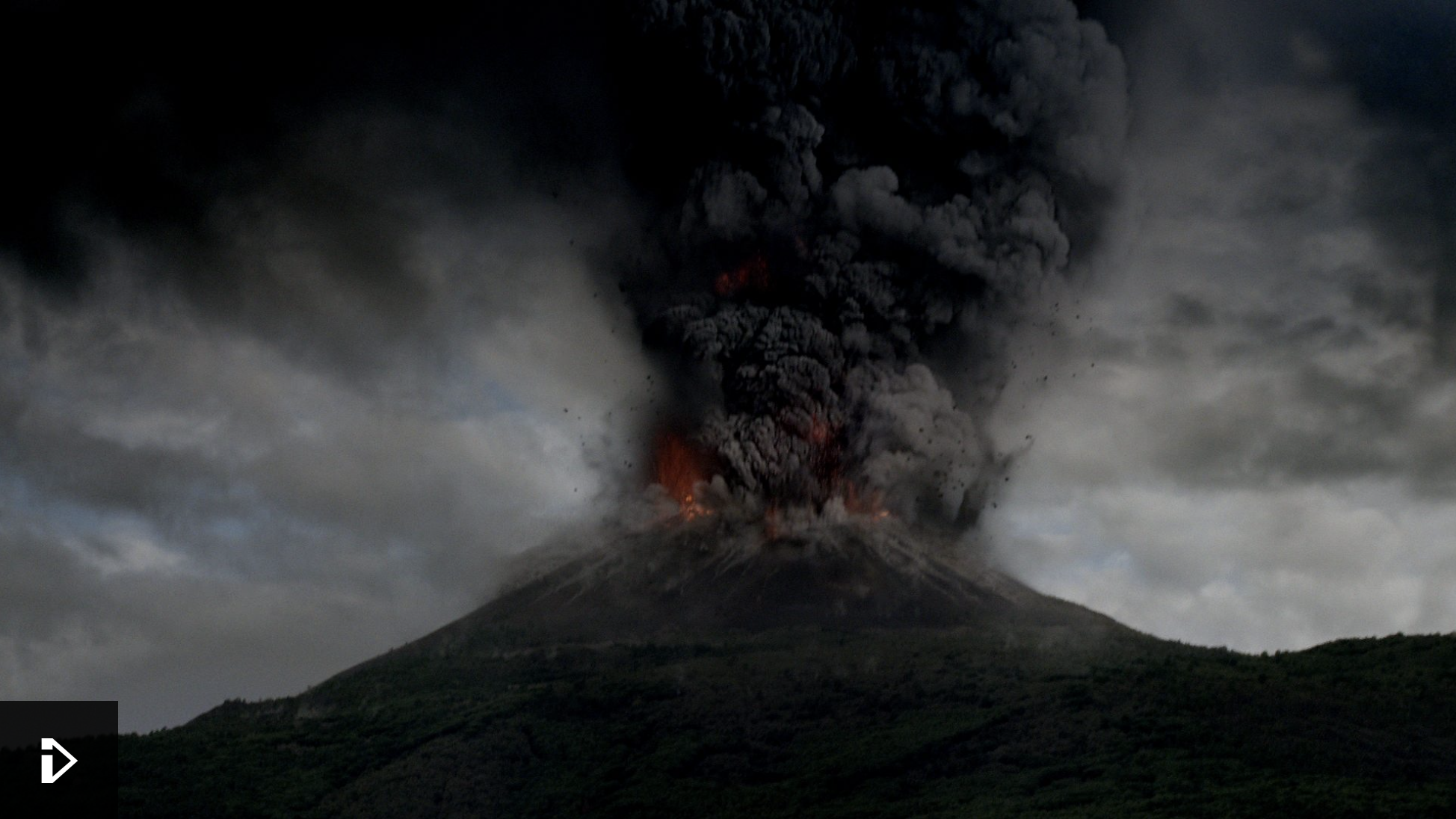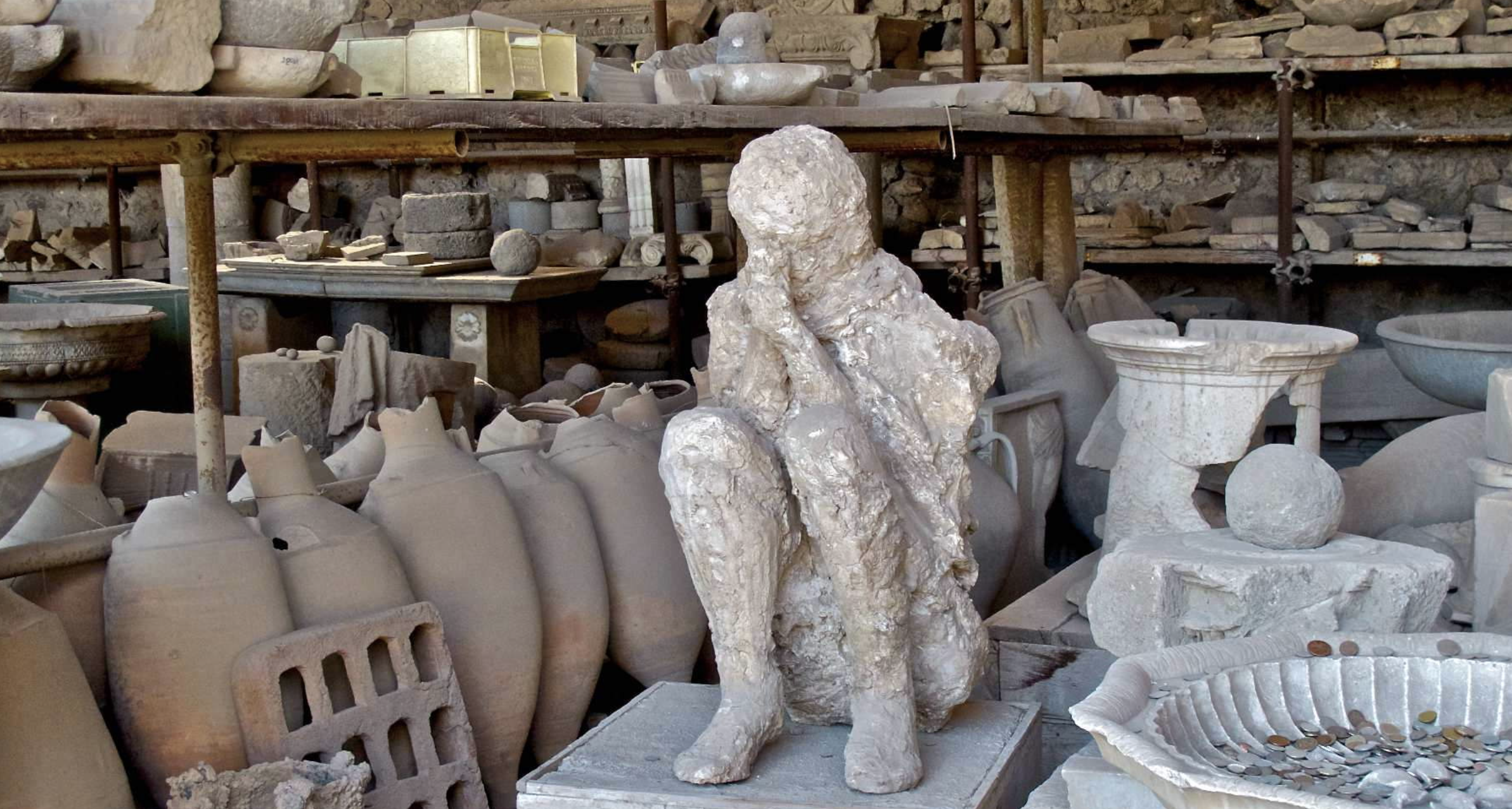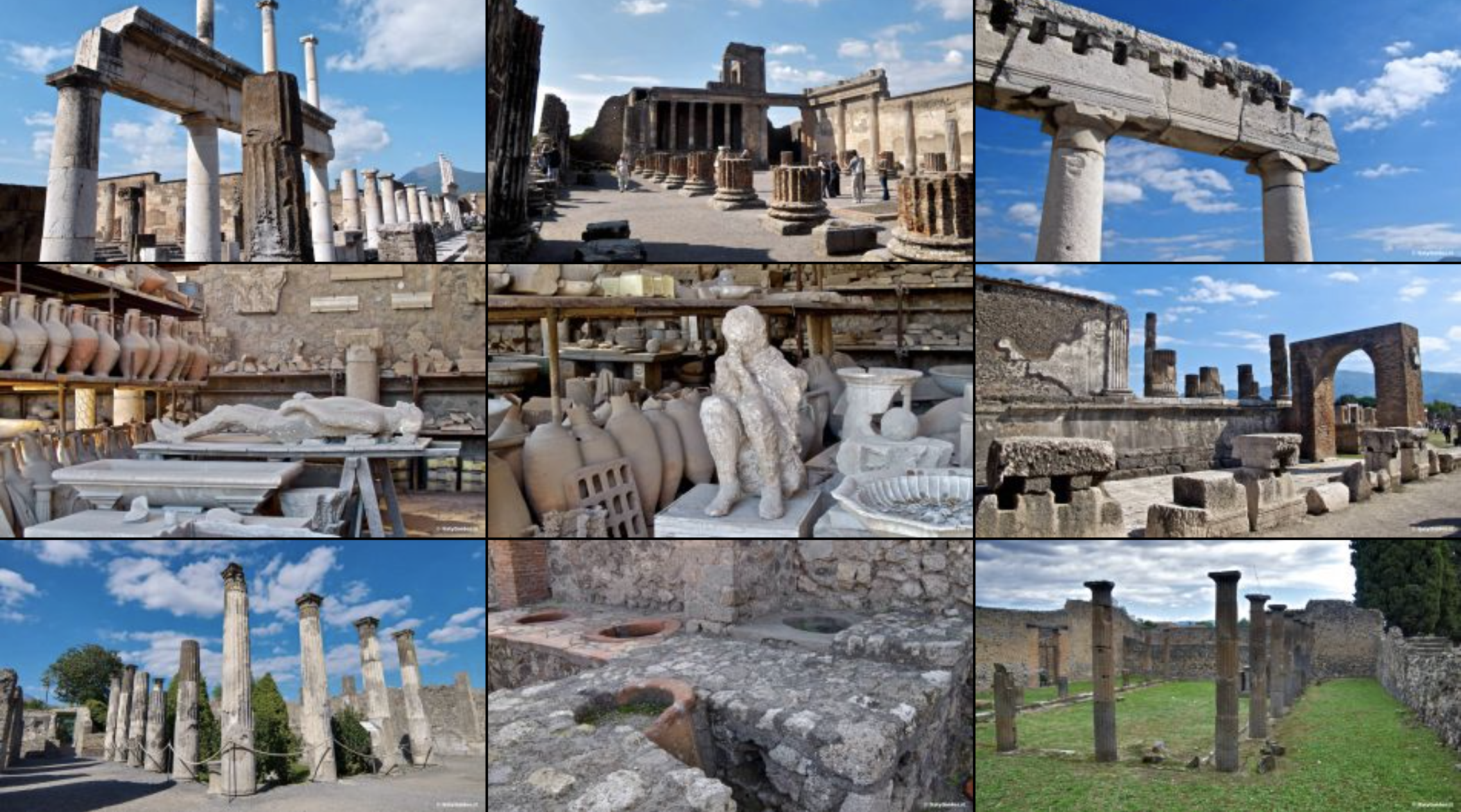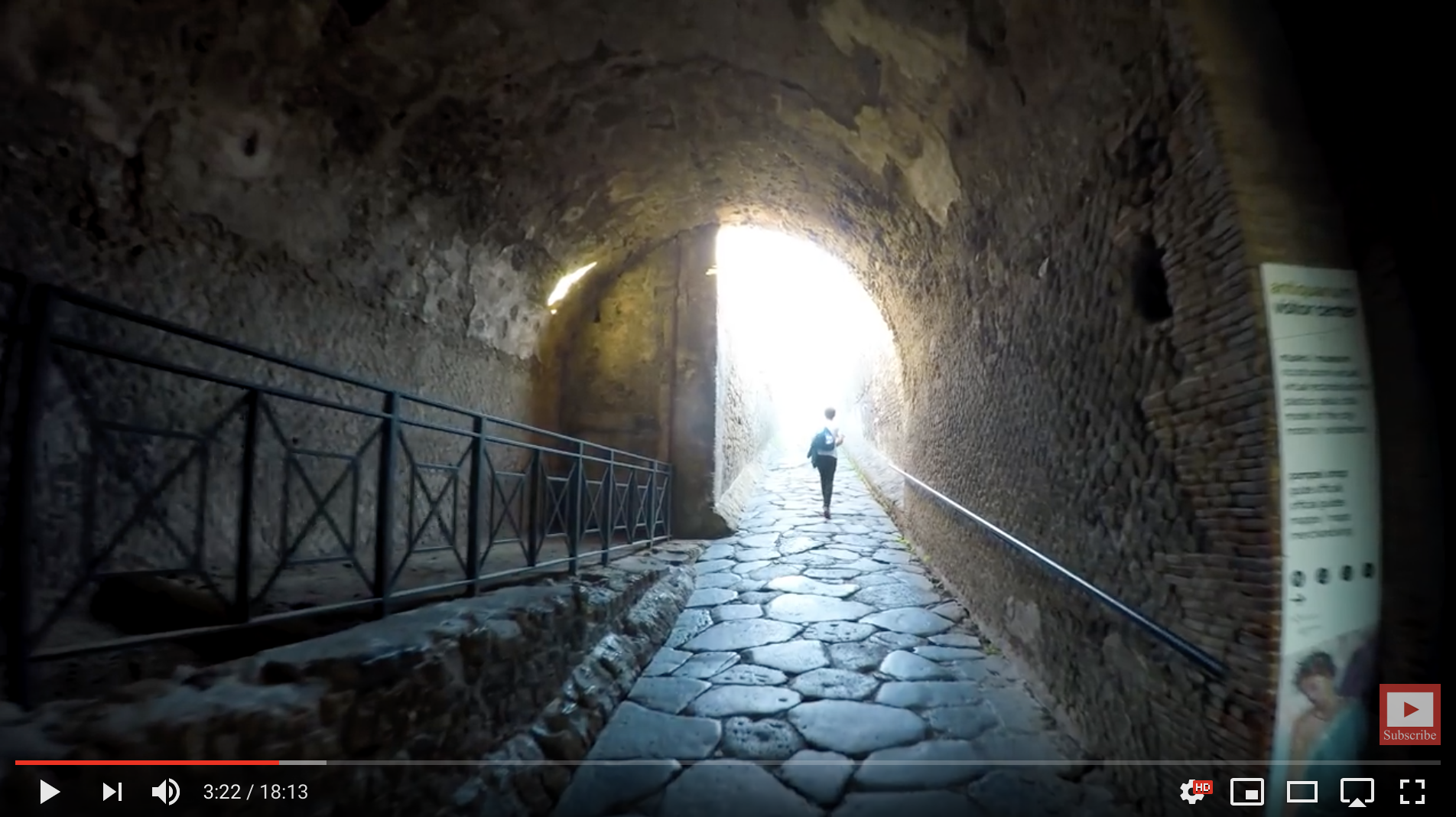Escape from Pompeii
Escape from Pompeii by Christine Balit
Travel back in time to the days of the Roman Empire and join Tranio, the son of an actor, and his friend Livia, the baker’s daughter, in witnessing the eruption of Mount Vesuvius in AD79. Tranio, like most Roman boys, likes to watch whatever is going on: tradesmen selling their goods, ships unloading their exotic cargoes, politicians making speeches in the forum. But one hot August day a very different scene unfolds. The ground begins to shake, the sky to darken. People run gasping for air. Heading for the harbour, Tranio and his friend Livia hide on a boat and witness one of the most terrifying moments in recorded history-the eruption of Mount Vesuvius and the destruction of their beloved city, Pompeii.
Main Focus: History of Pompeii
This is an English resource to introduce your class to the history of Pompeii in a bitesize way.
Your class will learn about the different people who built and inhabited the city as well as the reasons why it was a desirable place to live.
We have included a multiple choice comprehension to go along with this non fiction resource.
Unlock ResourceMain Focus: Commas or Full Stops?
This resource focuses on commas for Fronted Adverbials, commas for lists, commas before speech and more.
Your class will decide wether to place commas or a full stops into the passages or sentences.
We have differentiated this resource to cater for Year 3 and Year 4 classes.
Unlock ResourceMain Focus: Apostrophes
This resource uses some of the sentences from the story and some other sentences have been created based on the story for the purpose of the activity.
Your children will complete this activity and focus on contractions and apostrophes for possession.
Unlock ResourceMain Focus: Vocabulary Extension
This is a great resource pack that helps your children delve a little deeper into the vocabulary used within the story Escape from Pompeii.
Your children will:
Choose their own vocabulary to complete the sentences.
Use the word bank to complete the sentences.
Choose between two words to complete the sentences.
Choose between two closely linked words to complete the sentence.
Choose a reduced number of sentences and words.
Once this activity has been completed, it would be useful if your KS2 class could apply what they have learnt and write some of their words in a new context.
Unlock ResourceMain Focus: Past and Present Tense
In this non-fiction resource, your class will learn some key facts and information about Pompeii as well as focusing in on past and present tense.
The resource uses a range of verbs in the past tense and your children must identify those words and then write the present tense.
The vocabulary used is challenging at times and the resource has been differentiated to allow children to start at different levels to ensure they complete the task.
You can look at the terms used in the text such as: erupted, abandoned, rediscovered, astonished, educated, dense, submerged, looms, enveloped, debris and artefacts.
Unlock ResourceMain Focus: Non-Fiction
This resource allows your class to explore volcanoes more and learn a bit more about the key vocabulary and terms associated.
The resource explores:
What is a volcano?
How does a volcano erupt?
Gases
Mount Vesuvius
Krakatoa
Mount St. Helens
Mount Tambora
Unlock ResourceMain Focus: Comprehension
This is a comprehension activity that explore the final page of the book entitled ‘ The Story of Pompeii’.
Your children will learn key information within the text and then answer the questions.
The questions in this comprehension will challenge your KS2 class. There are five different levels of differentiation and a range of questions.
Unlock ResourceMain Focus: Inverted Commas
This is a great resource to help your children identify and add in the inverted commas for dialogue use between Tranio and Livia.
Your KS2 children will use a few paragraphs from the story and determine who is talking and where the inverted commas should go. There are six different variations of this guided reading activity to help with those children that are starting at different points. All children will complete the same text, although some may have a reduced amount.
Unlock ResourceMain Focus: Character Study and Inference
This brilliant resource is a character study of Tranio and is linked to inference in a number of ways. We have also included a multiple choice resource to accompany this task.
Tranio is the first character we are introduced to in the book Escape from Pompeii. We explore different events throughout the book to see what we can learn about Tranio’s character.
Unlock Resource
Main Focus: A Day in Pompeii - Picture Resources
This is a resource that shows the events that unfolded that fateful day Vesuvius erupted.
Your children can:
Describe the events as they unfold.
Create captions for a newspaper report.
Create dialogue of eye witnesses as the events unfold.
Create a narrative.
Use as a word mat to help during writing.
and anything else you can think of.
Unlock Resource
A Day in Pompeii - Animation
This resource is an animation of the events unfolding on 24 August 79 AD in Pompeii.
A few of the pictures have been included in the resource above for an activity to support the video resource.
Allow the children to watch once through and then during the second time, allow them to create descriptions, dialogue between the people etc.
Unlock ResourceVesuvius and Pompeii - The Story
This is a brilliant resource to accompany the story ‘Escape from Pompeii’ that brings to life the events on 79 A.D once Mount Vesuvius erupted. The story gives children an insight to the scale of the devastation caused by the eruption.
Unlock ResourcePompeii Picture Bank
This is a super bank of resources to help your children gain insight to Pompeii.
All images may not be suitable but you can print off the images and create some discussion points around them.
Unlock ResourceVirtual Tour of Pompeii
It is very unlikely that your school is going to offer a trip to Pompeii, so why not have a virtual tour instead?
This is brilliant as it explores facts throughout the tour. It explores:
00:24 – Pompeii Entrance
02:13 – Marina Gate (Porta Marina)
04:40 – House of Trittolemo (Casa di Trittolemo)
08:45 – Temple of Apollo (Tempio di Apollo)
09:23 – The Forum
09:49 – View of Mt. Vesuvius and Forum
10:37 – The Eumachia
11:50 – Statue of Eumachia
13:51 – Temple of Genius Augusti
14:59 – The Macellum
15:37 – Skeletons
*Please check all resources are appropriate before use with your class.
Unlock Resource
